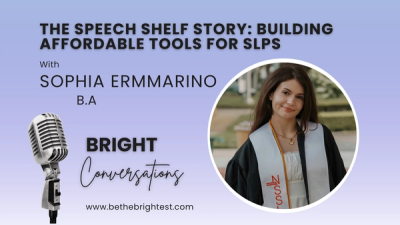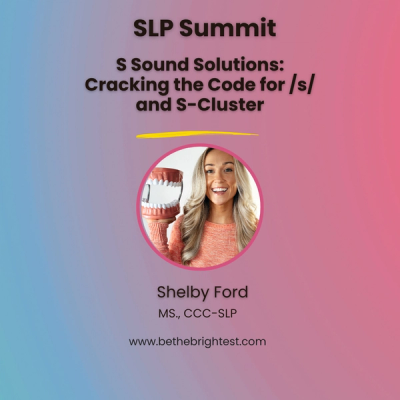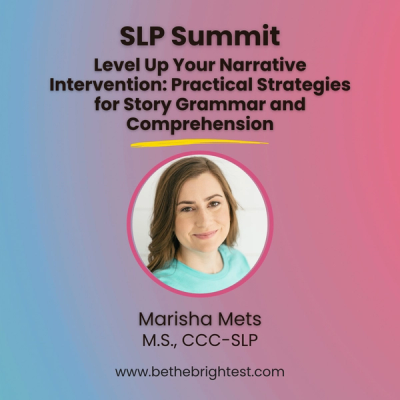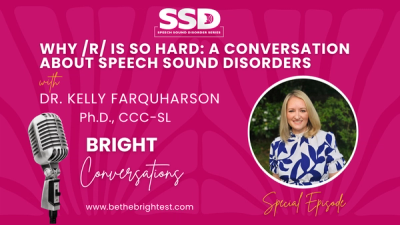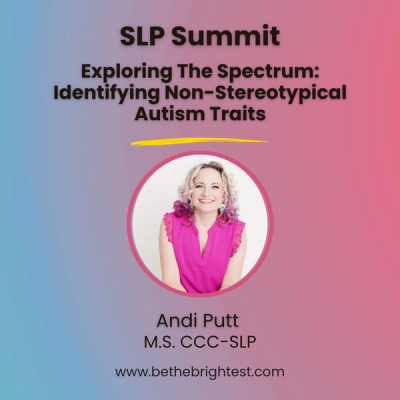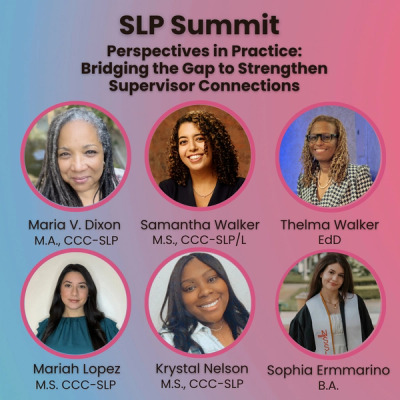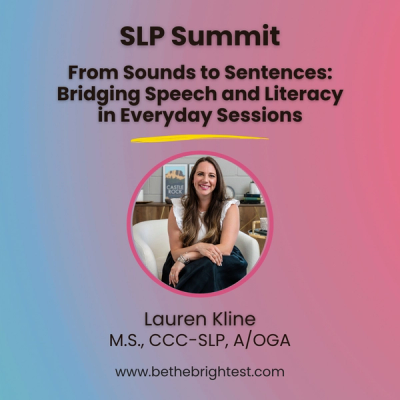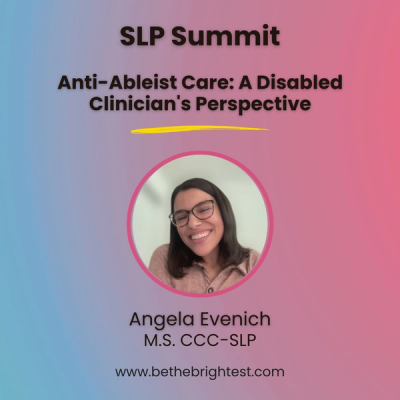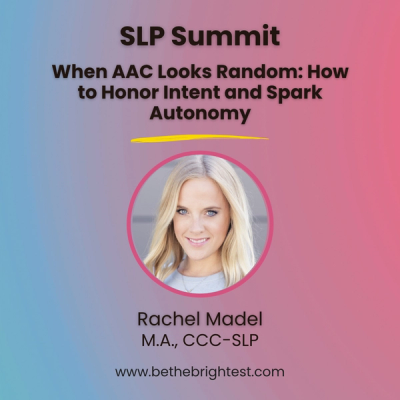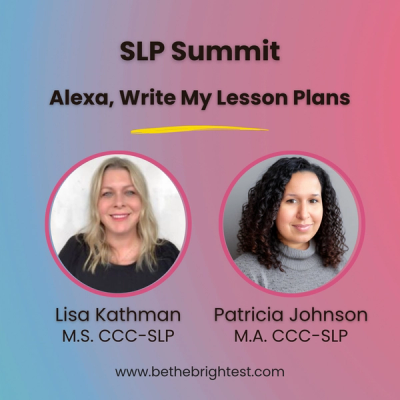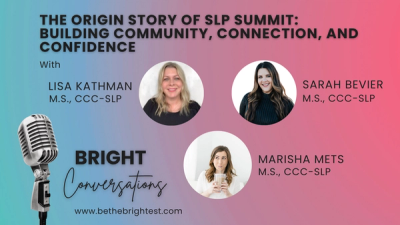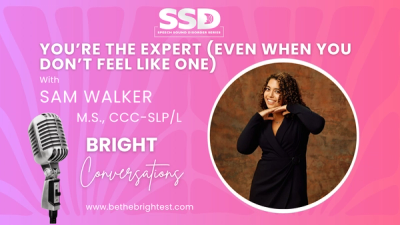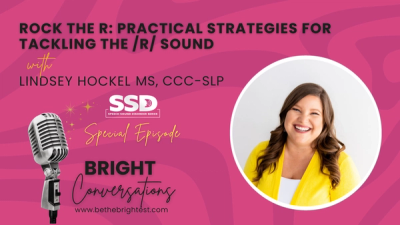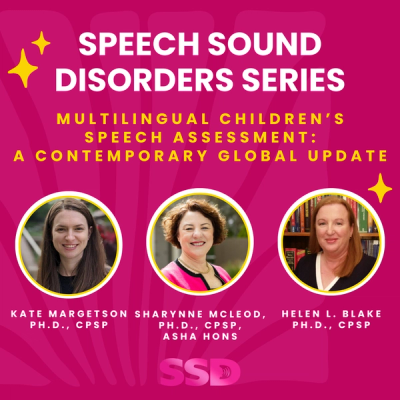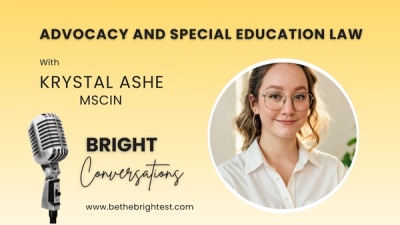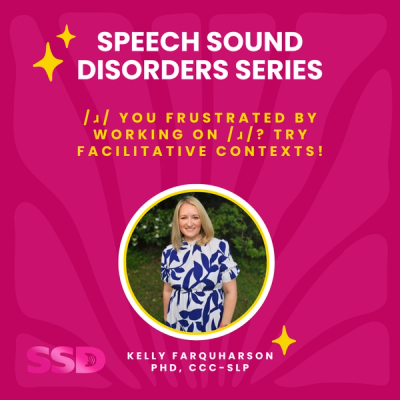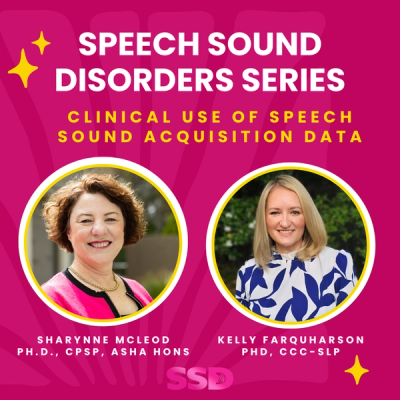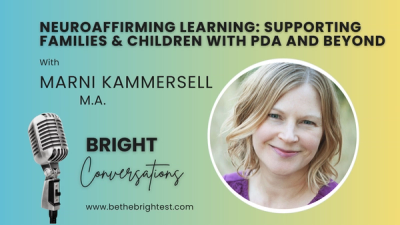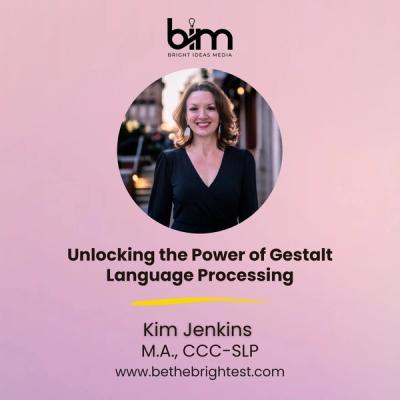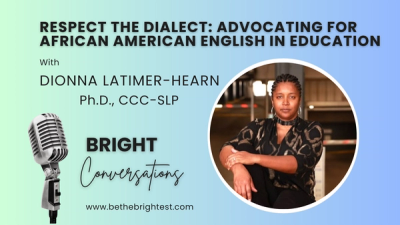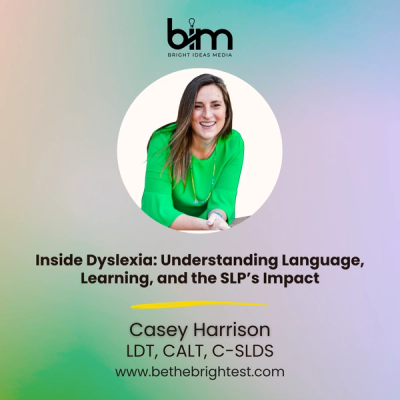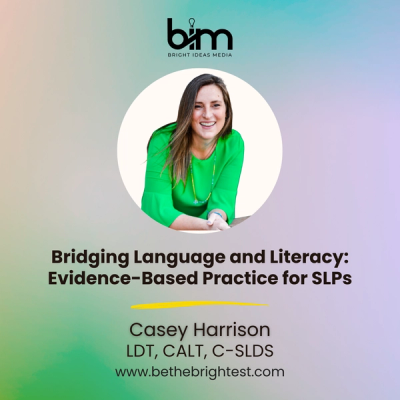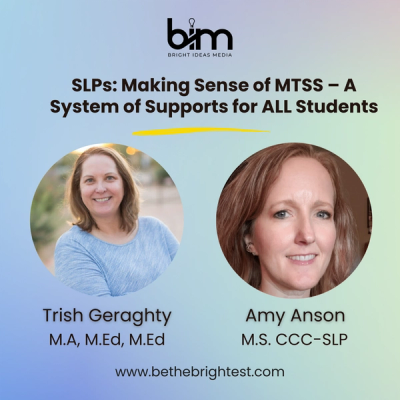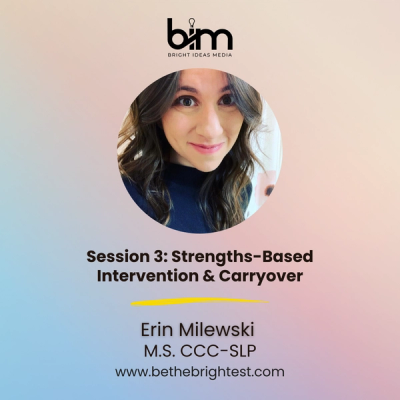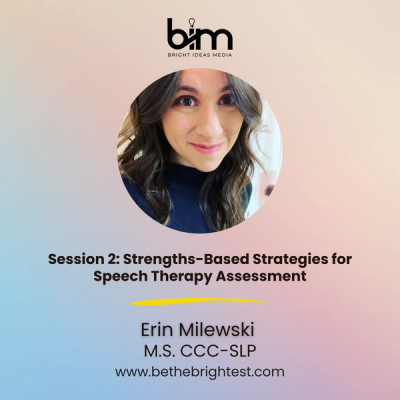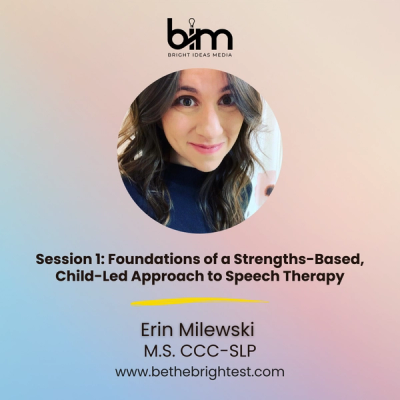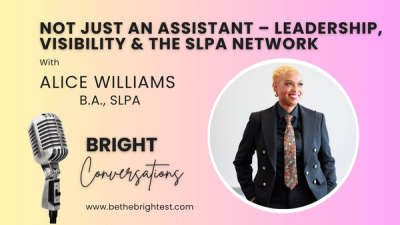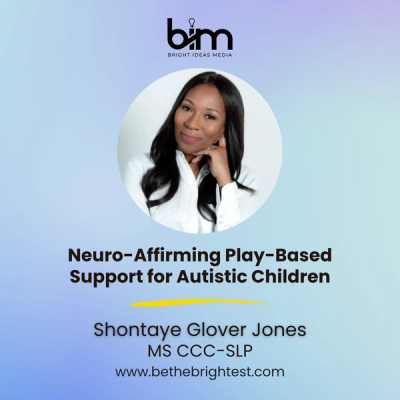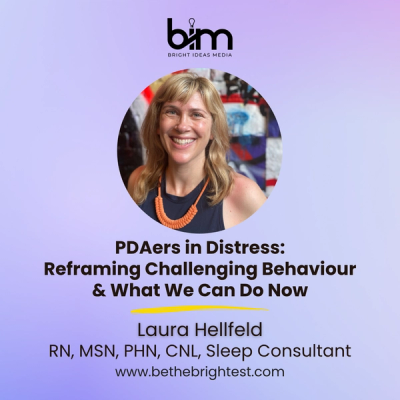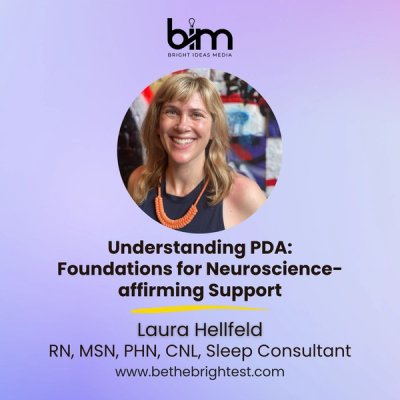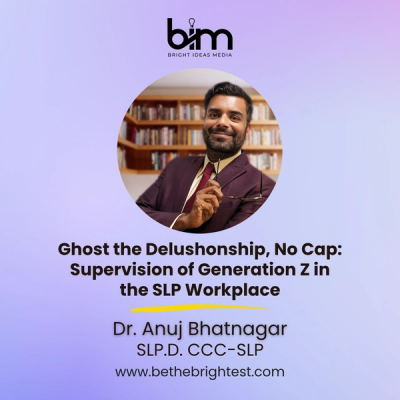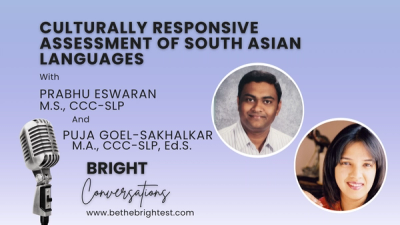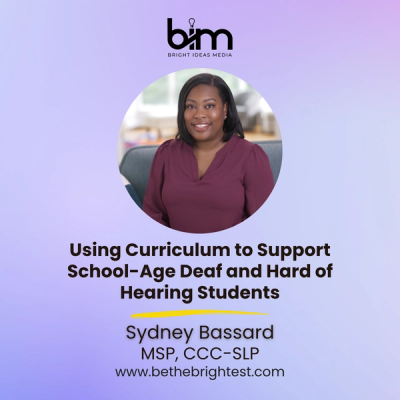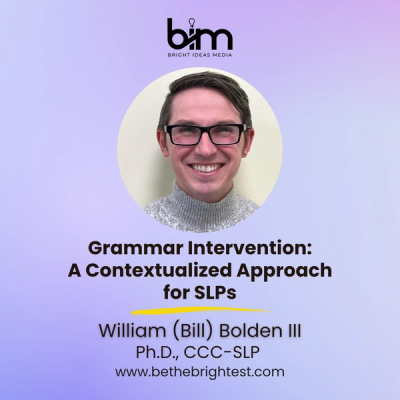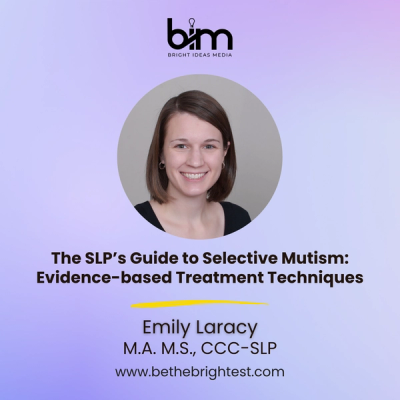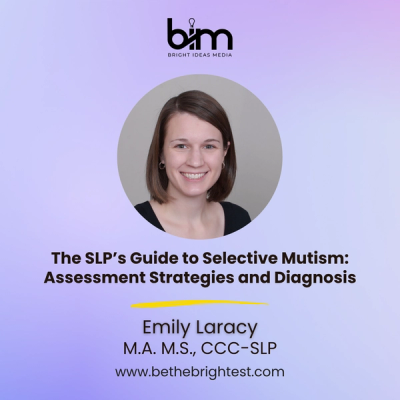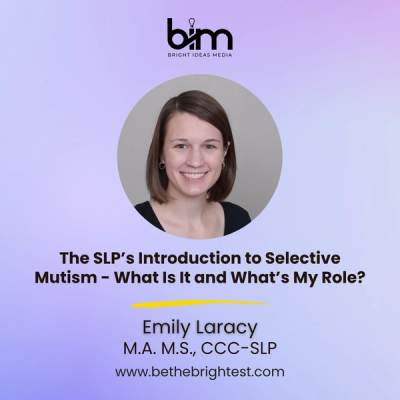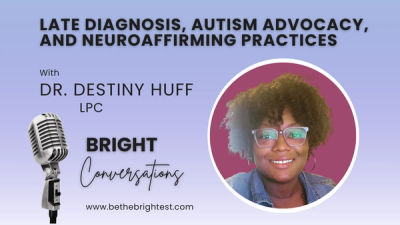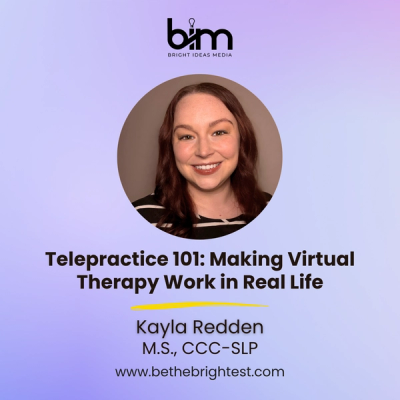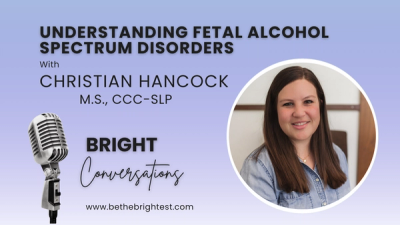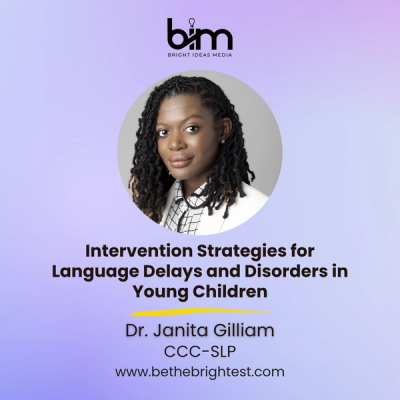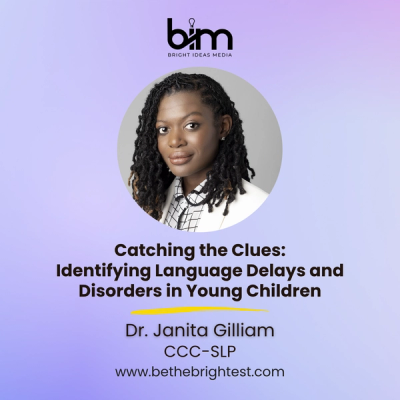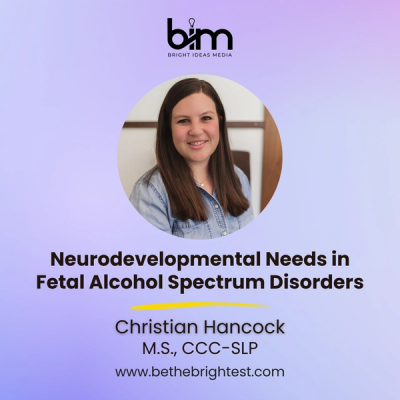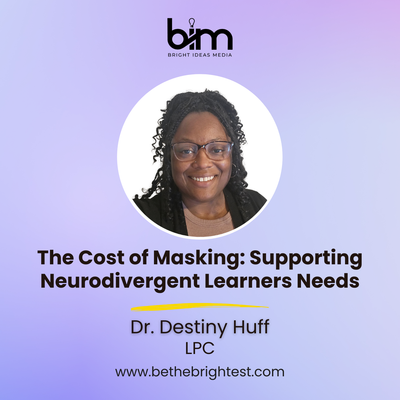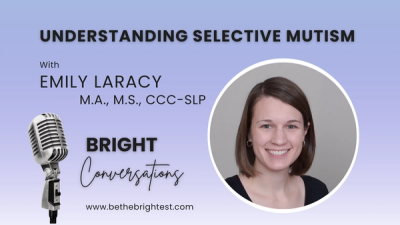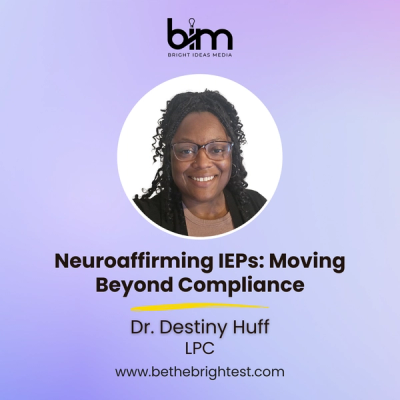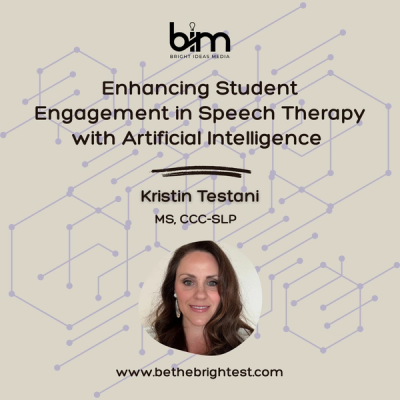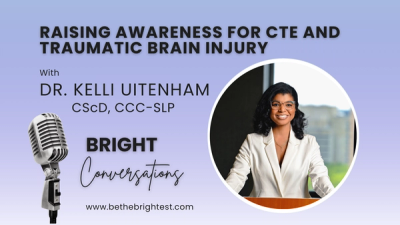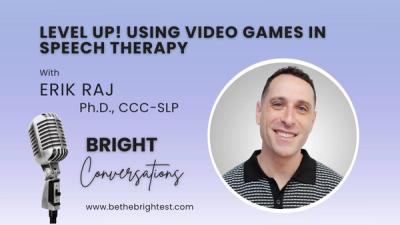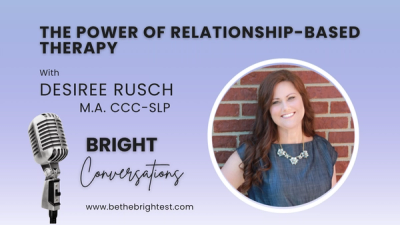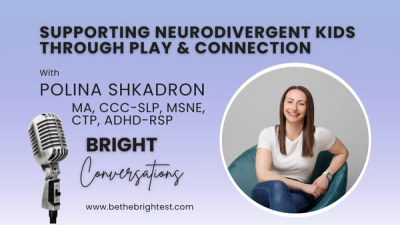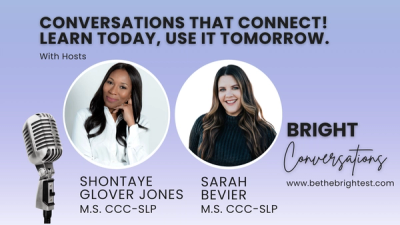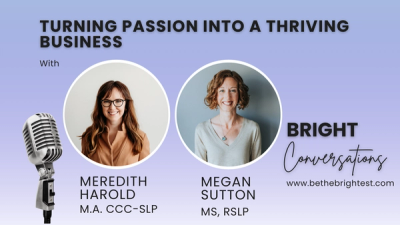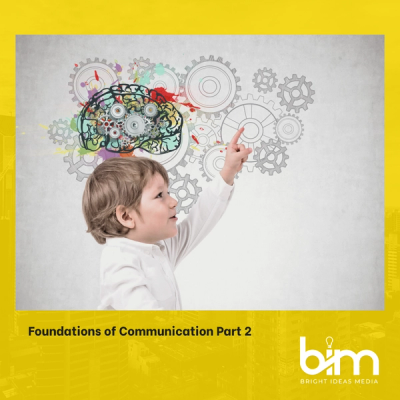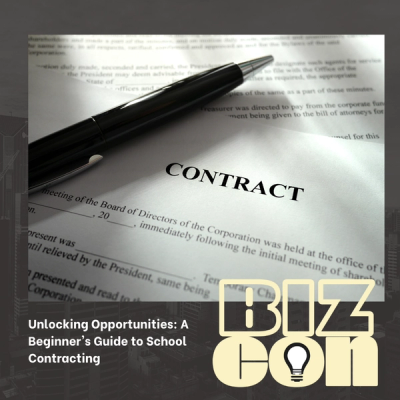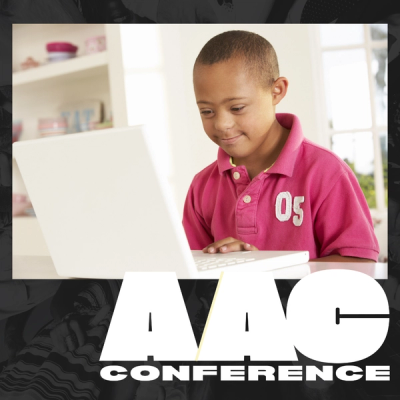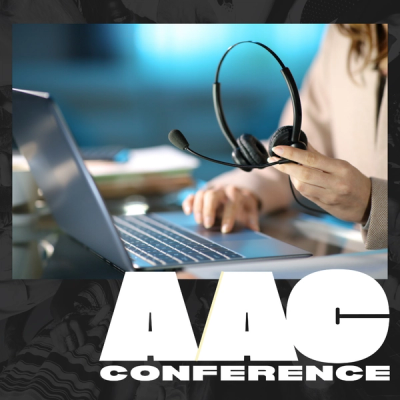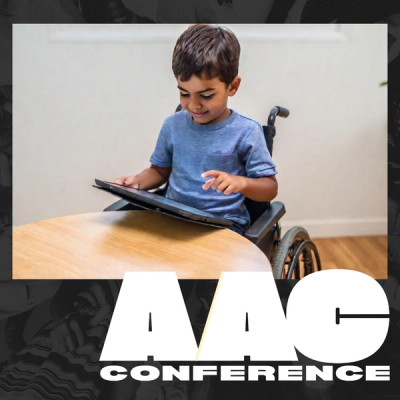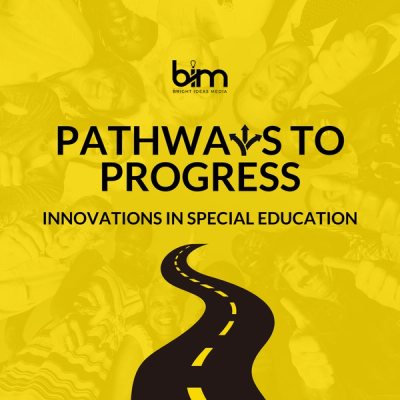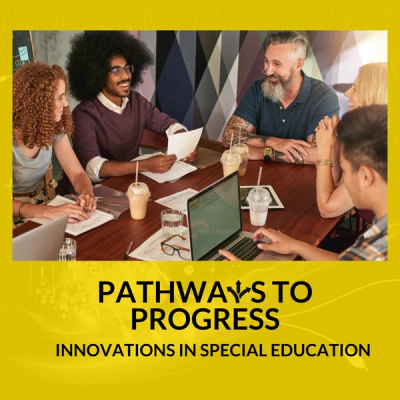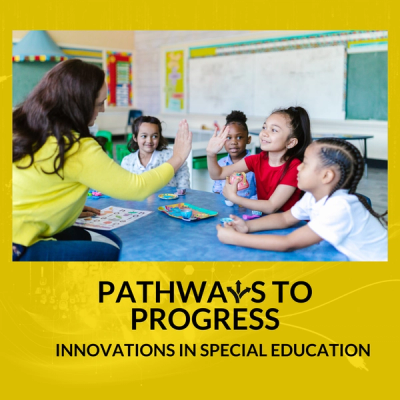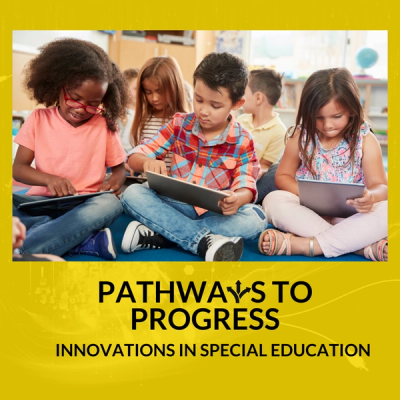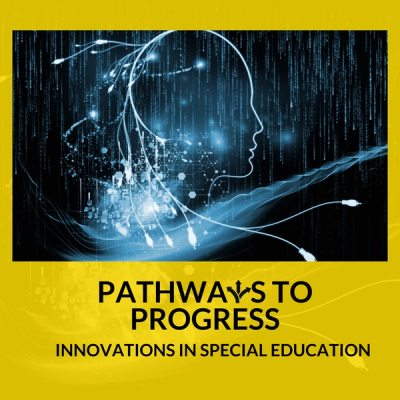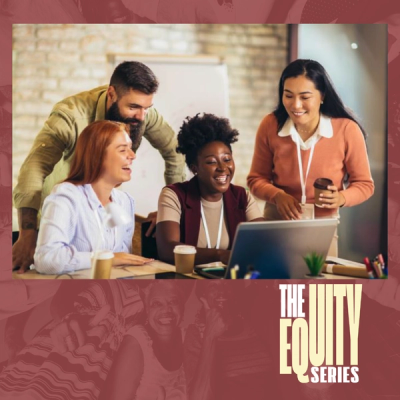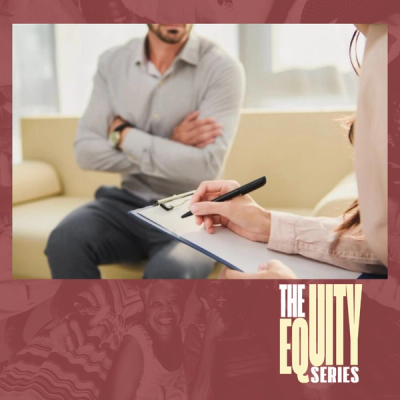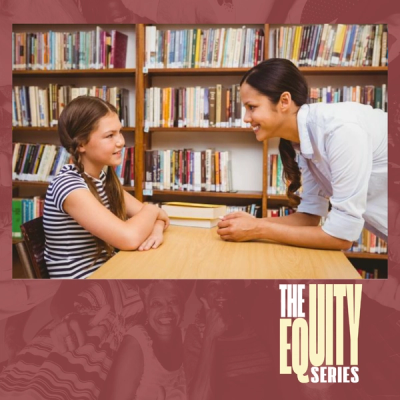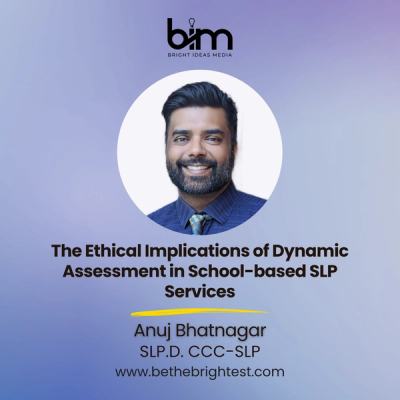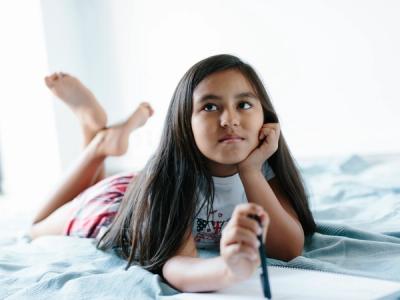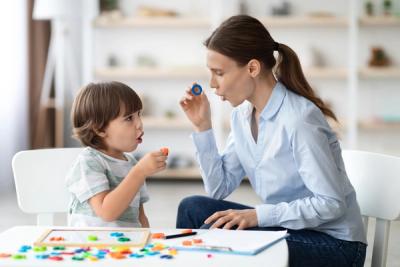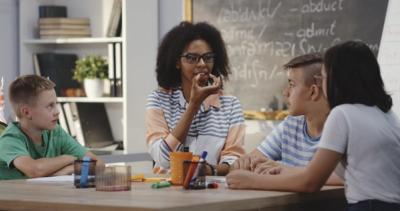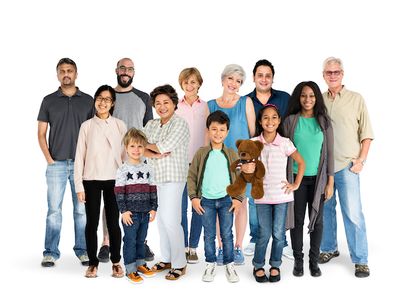Courses
The Speech Shelf Story: Building Affordable Tools for SLPs
In this SLP Summit sponsored episode of Bright Conversations, SLP graduate student and founder of The Speech Shelf, Sophia Ermmarino, discusses affordability, access, and the hidden financial realities within speech-language pathology. They explore the challenges students and early-career clinicians face—from graduate school debt to buying therapy materials—and how greater transparency and community-driven resources can build a more equitable field.
Presenter
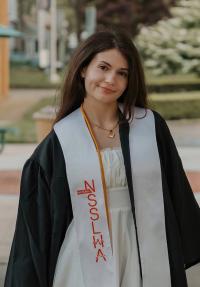
Sophia ErmmarinoB.A
S Sound Solutions: Cracking the Code for /s/ and S-Clusters
S Sound Solutions: Cracking the Code for /s/ and S-Clusters” is a practical, evidence-based course designed to help speech-language pathologists master elicitation and treatment of /s/ and cluster targets. Through clear instruction, demonstrations, and functional strategies, participants will learn how to refine tongue placement, airflow control, and sequencing skills to achieve accurate, consistent, and confident /s/ productions that carry over beyond the therapy room.
Presenter

Shelby FordM.S., CCC-SLP
Level Up Your Narrative Intervention: Practical Strategies for Story Grammar
This session explores five research-backed strategies to help SLPs teach story grammar, strengthen comprehension, and boost story generation through meaningful, engaging practice.
Presenter
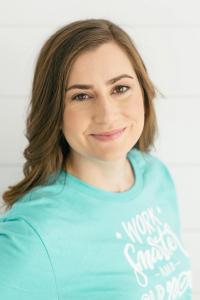
Marisha MetsM.S., CCC-SLP
Why /r/ Is So Hard: A Conversation About Speech Sound Disorders
In this special Bright Conversations episode, host Shontaye Glover Jones sits down with Dr. Kelly Farquharson, professor at Florida State University and director of the Children’s Literacy and Speech Sound (CLaSS) Lab, to talk all things speech sound disorders—and why the /r/ sound is such a notorious challenge.
Presenter
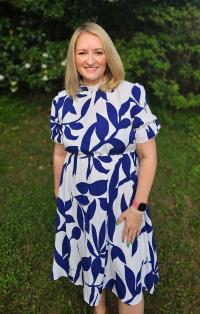
Kelly FarquharsonPhD, CCC-SLP
Exploring the Spectrum: Identifying Non Stereotypical Autism Traits
Did you know almost all SLPs have unidentified Autistic students on their caseloads? It's true! Learn how to spot the the non-stereotypical presentations to best support low support needs Autistic kids.
Presenter

Andi PuttM.S. CCC-SLP
Perspectives in Practice: Bridging the Gap to Strengthen Supervisor Connections
Hear candid insights from SLPs at every career stage as they break down what truly supports effective, culturally aware supervision. Learn practical communication and collaboration strategies you can use right away—while also meeting ASHA’s supervision requirement.
Presenters
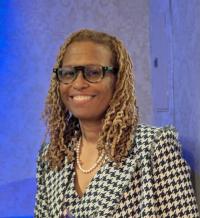
Dr. Thelma Ramsey BryantEdD
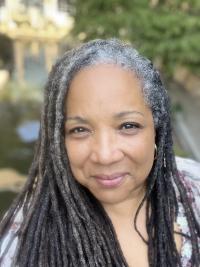
Maria V. DixonM.A., CCC-SLP
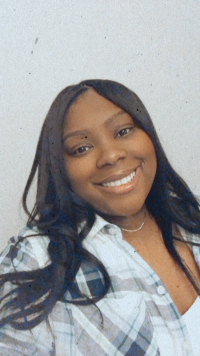
Krystal NelsonM.S., CCC-SLP
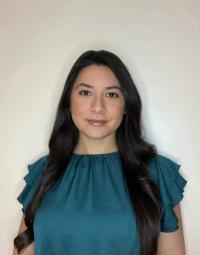
Mariah LopezM.S. CCC-SLP
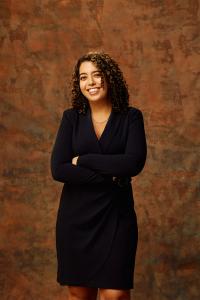
Sam WalkerM.S., CCC-SLP/L

Sophia ErmmarinoB.A
From Sounds to Sentences: Bridging Speech and Literacy in Everyday Sessions
From first sounds to first sentences, this course empowers clinicians with evidence-based strategies to connect speech sound development and early literacy. Discover practical tools to support phonological and phonemic awareness, phoneme-grapheme correspondences, and vocabulary growth using versatile activities designed for everyday sessions that create meaningful impact.
Presenter
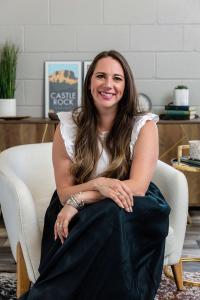
Lauren KlineM.S., CCC-SLP, A/OGA
Anti-Ableist Care: A Disabled Clinician's Perspective
This course explores how ableism shapes the field of speech-language pathology and offers a framework for anti-ableist, disability-informed care. Grounded in the lived experience of a disabled SLP with cerebral palsy, participants will learn practical tools to disrupt ableism, advocate for accessibility, and create therapy spaces that affirm disabled identities.
Presenter

Angela EvenichM.S. CCC-SLP
When AAC Looks Random: How to Honor Intent and Spark Autonomy
Discover how to recognize and honor intent in early AAC use—even when it looks “random.” This session will help you shift from correction to connection, so you can build trust, spark autonomy, and support authentic communication with students on your caseload who use AAC.
Presenter

Rachel MadelM.A., CCC-SLP
Alexa, Write My Lesson Plans
This fast, practical session shows how to move from “collecting for compliance” to “collecting for impact.”
Presenters

Lisa KathmanM.S. CCC-SLP

Patricia JohnsonMA, CCC-SLP
The Origin Story of SLP Summit: Building Community, Connection, and Confidence
In this special episode, host Shontaye Glover Jones sits down with the founders of SLP Summit — Lisa Kathman and Sarah Bevier of SLP Toolkit and Marisha Mets of SLP Now. Together, they share how a simple idea to connect SLPs and provide accessible professional development grew into a beloved, career-sustaining event that’s been going strong for nine years.
Presenters

Lisa KathmanM.S. CCC-SLP
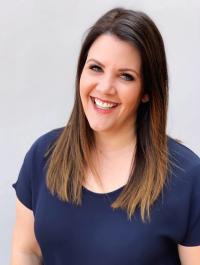
Sarah BevierM.S. CCC-SLP

Marisha MetsM.S., CCC-SLP
“You’re the Expert (Even When You Don’t Feel Like One)”
New setting, new caseload, new title… and suddenly everyone calls you the “expert.”
Presenter
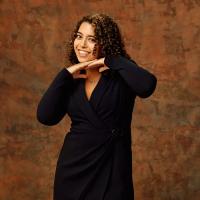
Samantha Walker M.S., CCC-SLP/L
Rock the R: Practical Strategies for Tackling the /r/ Sound with Lindsey Hockel
Speech sound expert Lindsey Hockel joins us to break down her favorite tools, techniques, and mindset shifts for teaching the /r/ sound. From biofeedback to self-rating strategies, she offers evidence-based ways to engage students and make meaningful, measurable progress.
Presenter
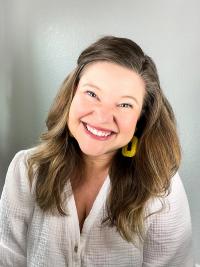
Lindsey HockelM.S., CCC-SLP
Multilingual Children’s Speech Assessment: A Contemporary Global Update
Learn how to identify multilingual children with speech sound disorders using the latest evidence from 130 languages. This course covers children’s speech development, assessment, analysis, and differential diagnosis, including practical application of the Speech Assessment of Children’s Home Language(s) (SACHL).
Presenters
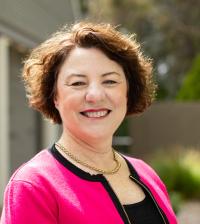
Sharynne McLeodPh.D
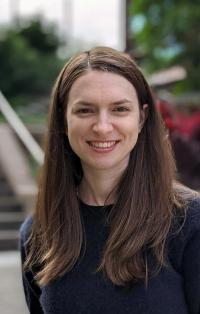
Kate MargetsonPh.D.
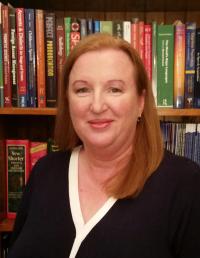
Helen L. BlakePh.D.
Advocacy and Special Education Law
In this episode of Bright Conversations, hosts Shontaye Glover Jones and Sarah Bevier sit down with Krystal Ash of K Altman Law, to continue a powerful conversation that began at the July 2025 SLP Summit. Krystal’s course on advocacy and special education law drew overwhelming feedback from participants who wanted even more time to dive into the complexities of how legal frameworks impact our work as SLPs.
Presenter
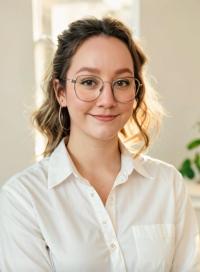
Krystal AsheMSCIN
/ɹ/ you frustrated by working on /ɹ/? Try facilitative contexts!
“R is among the most menacing of sounds” – Dwight Schrute. If you agree – this session is for you! Using phonetic science, we will dive into the various tongue postures necessary for correct /ɹ/ productions in pre-vocalic position, vocalic positions, and consonant clusters. This will include an overview of the vowel quadrilateral and the ways in which choosing the correct vowel sound can help to optimize your treatment word list.
Presenter

Kelly FarquharsonPhD, CCC-SLP
Clinical Use of Speech Sound Acquisition Data
If you treat speech sound disorders – you won’t want to miss this! Speech-language pathologists who work with speech sound disorders may hear mixed messages related to how and when to use speech sound acquisition data for clinical decision making. Drs. McLeod and Farquharson are here to help and to talk about Dr. McLeod’s internet-breaking article regarding speech sound acquisition across 27 languages.
Presenters

Kelly FarquharsonPhD, CCC-SLP

Sharynne McLeodPh.D
Neuroaffirming Learning: Supporting Families & Children with PDA and Beyond
In this episode of Bright Conversations, host Shontaye Jones sits down with Marni Kammersell, a neurodivergent researcher, consultant, and advocate who helps families build neuroaffirming learning environments. Drawing from her doctoral research and lived experience, Marni shares insights on how autonomy-supportive practices foster resilience, growth, and well-being for children and families.
Presenter
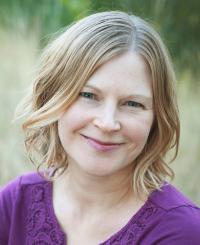
Marni KammersellM.A.
Unlocking the Power of Gestalt Language Processing
This session introduces the six stages of Gestalt Language Processing (GLP) and how language moves from echolalia to flexible sentences. Participants will learn key differences between GLP and Analytic Language Processing (ALP) and walk away with practical, neuroaffirming strategies to support communication.
Presenter

Kim JenkinsM.S., CCC-SLP
Respect the Dialect: Advocating for African American English in Education
Dr. Dionna Latimer Hearn discussed African American English (AAE) as a rule-governed language and how it intersects with educational equity. The course explored what it means to respect dialects other than Standard American English and offered a roadmap for unlearning deficit-based frameworks. Participants were given resources to embrace culturally and linguistically affirming practices.
Presenter
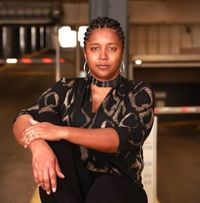
Dionna Latimer-HearnPh.D., CCC-SLP
Part 1: Inside Dyslexia: Understanding Language, Learning, and the SLP’s Impact
Dyslexia, a language-based difference that extends beyond reading, presents a unique opportunity for Speech-Language Pathologists (SLPs) to make a significant impact. This two-part course, blending current research with practical strategies, is designed to equip you with the tools to identify, understand, and support students with dyslexia. In Part 1, you will gain a clear, research-based foundation on the neurological and linguistic underpinnings of dyslexia, its impact on literacy, and the crucial role of SLPs in intervention and collaboration.
Presenter
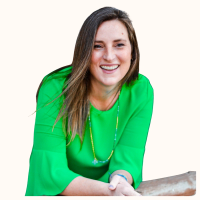
Casey HarrisonLDT, CALT, C-SLDS
Part 2: Bridging Language and Literacy: Evidence-Based Practice for SLPs
This two-part course blends current research with practical strategies, is designed to equip you with the tools to identify, understand, and support students with dyslexia. In Part 1, you will gain a clear, research-based foundation on the neurological and linguistic underpinnings of dyslexia, its impact on literacy, and the crucial role of SLPs in intervention and collaboration. In Part 2, you will learn how to apply structured literacy principles, embedding evidence-based practices into language goals to strengthen decoding, spelling, comprehension, and writing. You will leave prepared to integrate these tools immediately into your practice, advocate effectively, and help students thrive across the dyslexia continuum.
Presenter

Casey HarrisonLDT, CALT, C-SLDS
SLPs: Making Sense of MTSS – A System of Supports for ALL Students
Discover how speech-language pathologists can make a meaningful impact within a Multi-Tiered System of Support (MTSS). This session covers MTSS essentials, the SLP’s role at every tier, and real-world strategies to boost collaboration, overcome barriers, and enhance language outcomes for all students.
Presenters
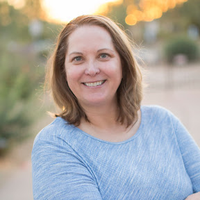
Trish GeraghtyM.Ed.
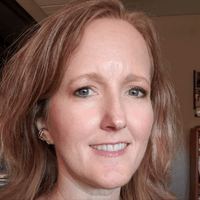
Amy AnsonM.S. CCC-SLP
Session 3: Strengths-Based Intervention & Carryover
This session equips participants with strategies for implementing strengths-based, child-led intervention that fosters engagement, functional communication, and lasting results. Practical examples will show how to create therapy plans that reflect the child’s goals and integrate into daily life.
Presenter
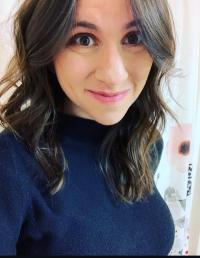
Erin Elizabeth MilewskiMS CCC-SLP
Session 2: Strengths-Based Strategies for Speech Therapy Assessment
This session provides practical tools for conducting speech and language assessments through a strengths-based, child-led lens. Participants will learn how to highlight abilities alongside challenges, gather meaningful input from key partners, and write reports that reflect the child’s unique profile and potential.
Presenter

Erin Elizabeth MilewskiMS CCC-SLP
Session 1: Foundations of a Strengths-Based, Child-Led Approach to Speech Therapy
This session introduces the foundations of a strengths-based, child-led approach to speech therapy. Participants will learn how to identify and leverage each child’s unique abilities, interests, and communication style to create more engaging, functional therapy. Through research, practical strategies, and real-world examples, attendees will discover how centering the child’s voice fosters motivation, resilience, and meaningful outcomes.
Presenter

Erin Elizabeth MilewskiMS CCC-SLP
Not Just an Assistant – Leadership, Visibility & The SLPA Network
In this inspiring episode, Shontaye and Sarah sit down with Alice Williams, a nationally recognized Speech-Language Pathology Assistant (SLPA), entrepreneur, and founder of The SLPA Network. With over seven years in the field, Alice has become a driving force for leadership, equity, and professional development for support personnel in speech-language pathology.
Presenter
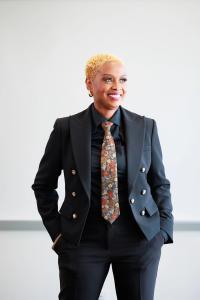
Alice L WilliamsB.A., SLPA
Neuro-Affirming Play-Based Support for Autistic Children
Moving away from traditional models that prioritize normalization, this session empowers SLPs to embrace and celebrate the unique ways autistic children engage with play. Participants will explore current research, practical strategies, and real-world examples that respect sensory needs, communication preferences, and play styles.
Presenter

Shontaye Glover JonesMS CCC-SLP
PDAers in Distress: Reframing Challenging Behaviour & What We Can Do Now
Explore how to support PDAers in distress using neuro-affirming, compassionate approaches. Reframe ‘challenging behavior’ as expressions of distress, and learn practical, in-the-moment strategies. We’ll also cover proactive ways to build trust, respect autonomy, and improve care across education, health, and support settings.
Presenter
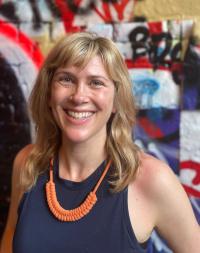
Laura HellfeldRN MSN PHN CNL
Understanding PDA: Foundations for Neuroscience-affirming Support
This webinar introduces Pathological Demand Avoidance (PDA) through lived experience and neuro-affirming care. We’ll explore how nervous system responses shape PDA traits, why safety through relationships and environments matters, and how to support learning, expression, and connection. Includes further resources to deepen understanding and build confidence.
Presenter

Laura HellfeldRN MSN PHN CNL
Empowering Children: Body Safety Education and Prevention
Teaching a topic like sexual abuse is multi-faceted, involving age-appropriate teaching methods and ensuring that children are informed in a sensitive and developmentally appropriate manner. This session will explore how to teach children in age-appropriate, empowering ways—giving them the tools to understand healthy boundaries, recognize unsafe situations, and speak up when something feels wrong. *This course satisfies ASHA's ethics requirement
Presenters
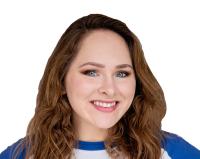
Deanna Hynes
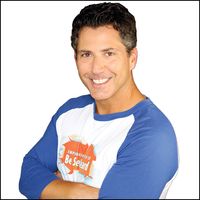
Victor Pacini
Ghost the Delushonship, No Cap: Supervision of Generation Z in the SLP workplace
This course is designed for speech-language pathologists (SLPs) in supervisory positions seeking to understand the priorities and tendencies of members of Generation Z (born 1995-2010). By gaining an understanding of Generational Theory, supervisors of Generation Z will learn strategies to work across generations, as well as understand their own biases and how those may influence the supervisory relationship. Case studies will be used to illustrate real life applications of the theory.
Presenter
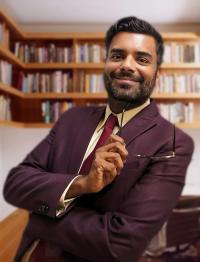
Anuj BhatnagarSLP.D. CCC-SLP
Culturally Responsive Assessment of South Asian Languages
SLPs Prabhu Ashwaran and Puja Goel join us to discuss culturally responsive assessment strategies for students who speak South Asian languages. Learn how to honor linguistic diversity and improve outcomes through more inclusive, informed practices. Topics discussed include recommendations for modifying standardized tests and using dynamic assessment, caregiver interviews, and barriers in school-based practice.
Presenters

Prabhu EswaranM.S., CCC-SLP

Puja GoelM.A., CCC-SLP, Ed.S.
Using Curriculum to Support School-Age Deaf and Hard of Hearing Students
The presentation focuses on using curriculum to your advantage as a speech-language pathologist in therapy. Learn ways to work within the exisiting framework to boost generalization of skills and reduce time planning sessions.
Presenter
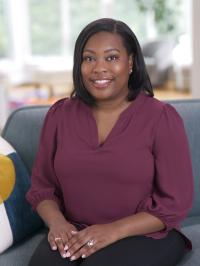
Sydney BassardMSP, CCC-SLP
Grammar Intervention: A Contextualized Approach for SLPs
Grammar intervention is part of the day-to-day reality for many school-based SLPs. In this course we will learn how to effectively target grammar within contextualized units using evidence-based practices to best support generalization.
Presenter
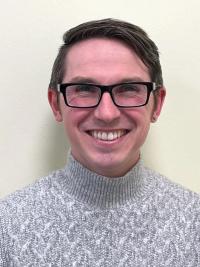
William Bolden IIIPh.D., CCC-SLP
The SLP’s Guide to Selective Mutism: Evidence-based Treatment Techniques
This presentation will provide the knowledge and tools to empower speech-language pathologists to take an active role in treating students with selective mutism (SM). We will review several evidence-based techniques and how these skills apply to speech therapy. Examples of activities and ways to target a variety of pragmatic language skills to improve functional communication will be discussed.
Presenter
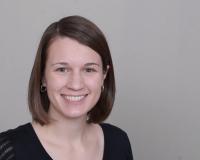
Emily LaracyM.A., M.S., CCC-SLP
The SLP’s Guide to Selective Mutism: Assessment Strategies and Diagnosis
Selective mutism (SM) negatively affects children’s pragmatic language, academic, and social-emotional skills, and falls under the speech-language pathologist’s scope of practice. This presentation will review the role of the SLP in assessing and diagnosing students with SM, provide assessment strategies and examples of specific tools, and review how to interpret results to set meaningful goals.
Presenter

Emily LaracyM.A., M.S., CCC-SLP
The SLP’s Introduction to Selective Mutism - What Is It and What’s My Role?
This introductory webinar explores foundational information about selective mutism (SM) as it relates to the speech-language pathologist (SLP), including its definition, presentation in school settings, red flags, myths, and common comorbidities. Attendees will learn about the negative reinforcement cycle that drives avoidance of speaking and the SLP’s role in working with students with SM.
Presenter

Emily LaracyM.A., M.S., CCC-SLP
Late Diagnosis, Autism Advocacy, and Neuroaffirming Practices
Therapist and advocate Dr. Destiny Huff shares her late-diagnosed journey with autism and ADHD, as well as the duality of being neurodivergent and parenting a neurodivergent child. Dr. Huff discusses navigating the special education system to support neurodivergent learners and the intersection of her personal and professional experience. Finally, Dr. Huff offers insights into how educators and families can advocate and embrace neuroaffirming practices to support diverse learners. *This content satisfies ASHA’s Cultural Competence, Cultural Humility, Culturally Responsive Practice, and/or Diversity, Equity, and Inclusion (CC/DEI) requirement.
Presenter
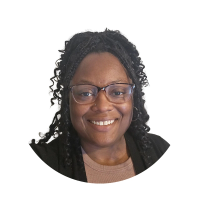
Dr. Destiny HuffLPC
Telepractice 101: Making Virtual Therapy Work in Real Life
Learn how to successfully deliver speech and language services virtually in a school setting. This course covers legal and ethical considerations, engagement strategies, data collection, and relationship-building techniques to help speech-language pathologists provide effective and compliant telepractice. This course is perfect for those new to or refining their online therapy approach.
Presenter
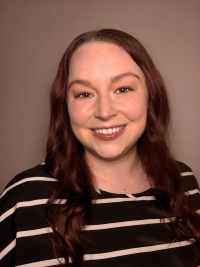
Kayla ReddenM.S., CCC-SLP
Understanding Fetal Alcohol Spectrum Disorders
In this insightful episode, Sarah sits down with Christian Hancock to explore a topic that is unfamiliar to many professionals in the field—Fetal Alcohol Spectrum Disorders (FASD). Together, they discuss what FASD is, the challenges individuals with FASD face, and how speech-language pathologists (SLPs) and other professionals can provide strength-based support. Christian shares her expertise, experiences, and practical guidance to help providers recognize and respond to FASD in a compassionate and effective way.
Presenter
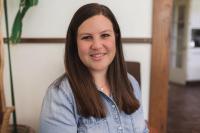
Christian HancockM.S., CCC-SLP
Intervention Strategies for Language Delays and Disorders in Young Children
SLPs play a critical role in supporting expressive language development during the earliest years of life. This course equips pediatric clinicians with evidence-based techniques to enhance vocabulary growth in infants, toddlers, and young preschoolers. Participants will learn how to reframe their intervention approach, incorporating culturally responsive and family-centered practices that align with the diverse needs of today’s early childhood populations. Ideal for professionals seeking fresh, practical tools to strengthen outcomes and engagement in early language intervention.
Presenter

Dr. Janita GilliamCCC-SLP
Catching the Clues: Identifying Language Delays and Disorders in Young Children
SLPs who work with the birth-three population and young preschoolers are essential in correct identification of children who present with early characteristics for developmental delays. This course provides speech-language pathologists with the tools to accurately assess and differentiate language delays from language disorders in children. Emphasizing culturally responsive practices, learners will explore standardized and dynamic assessments, integrate Social Determinants of Health (SDOH), and apply AI in language sampling. Through real-world case studies and observational methods, participants will enhance their diagnostic reasoning and develop individualized, evidence-based intervention plans.
Presenter

Dr. Janita GilliamCCC-SLP
Neurodevelopmental Needs in Fetal Alcohol Spectrum Disorders
Fetal Alcohol Spectrum Disorders (FASD) are one of the most common disabilities across the United States, yet most people have never heard of it. This presentation focuses on essential daily supports people with FASD need to think, learn, and interact with others. Learn how allied health professionals can be leaders in FASD-informed care and use practical strategies to maximize successful outcomes.
Presenter

Christian HancockM.S., CCC-SLP
The Cost of Masking: Supporting Neurodivergent Learners Needs
The Cost of Masking: Supporting Neurodivergent Learners Needs explores the emotional, behavioral, and communicative toll masking takes on neurodivergent learners. Geared toward speech-language pathologists (SLPs) and special education teachers, this course blends current research with practical application. Participants will learn how masking affects mental health, language development, and classroom participation. The course also provides neuroaffirming strategies to help students reduce masking and express themselves authentically in supportive environments.
Presenter

Dr. Destiny HuffLPC
Understanding Selective Mutism
Emily Laracy, a school-based speech-language pathologist who specializes in selective mutism, joins us for a powerful and informative conversation that explores what selective mutism is, how it typically develops, and most importantly, how SLPs and other professionals can provide meaningful, evidence-based support.
Presenter

Emily LaracyM.A., M.S., CCC-SLP
Neuroaffirming IEPs: Moving Beyond Compliance
This course equips Special Educators with practical strategies to develop neuroaffirming IEPs that center student identity, autonomy, and strengths—moving beyond basic compliance toward truly inclusive, student-centered support.
Presenter

Dr. Destiny HuffLPC
Enhancing Student Engagement in Speech Therapy with Artificial Intelligence
Join us for Enhancing Engagement in Speech Therapy with Artificial Intelligence to discover how AI can help students improve skills like writing, comprehension, social communication, and time management. Learn to craft effective prompts and teach students to use AI responsibly while making therapy fun and functional. Perfect for SLPs looking to boost student success!
Presenter
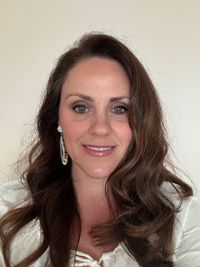
Kristin TestaniM.S. CCC-SLP SDL
Raising Awareness for CTE and Traumatic Brain Injury with Dr. Kelli Uitenham
In this episode of Bright Conversations, host Shontaye sits down with Dr. Kelli Uitenham, a medical Speech-Language Pathologist (SLP), to discuss Chronic Traumatic Encephalopathy (CTE), Traumatic Brain Injury (TBI), and the critical role that SLPs play in raising awareness and supporting affected individuals.
Presenter

Kelli A. UitenhamCScD, CCC-SLP
Level Up! Using Video Games in Speech Therapy
In this engaging episode of Bright Conversations, Sarah sits down with Erik Raj to discuss how Speech-Language Pathologists (SLPs) can use video games as a legitimate and effective therapy tool. Erik, a well-known advocate for innovative therapy strategies, shares insights on how video games can increase engagement, improve communication, and provide meaningful interactions for clients.
Presenter
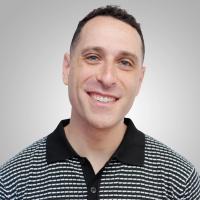
Erik X. RajPh.D., CCC-SLP
The Power of Relationship-based Therapy with Desiree Rusch
In this heartfelt conversation, Shontaye Glover-Jones is joined by pediatric speech-language pathologist Desiree Rusch to explore the deep value of human connection in therapeutic practice. With over 20 years of experience in early intervention, schools, hospitals, and private settings, Desiree reflects on how intentional relationship-building is the key to long-lasting success in therapy. From practical approaches to play-based therapy to navigating challenging environments with empathy, this episode is a powerful reminder that therapy is not just about techniques—it's about trust.
Presenter
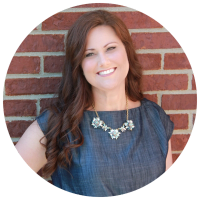
Desiree RuschM.A. CCC-SLP
Supporting Neurodivergent Kids Through Play & Connection
In this insightful episode of Bright Conversations, host Shontaye Glover Jones welcomes Polina Shkadron, a trauma-certified Speech-Language Pathologist, to explore the power of play, relationships, and brain-based strategies in supporting neurodivergent children.
Presenter
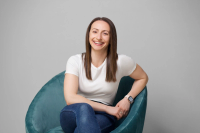
Polina ShkadronMA, CCC-SLP, MSNE, CTP, ADHD-RSP
Foundations of Communication Session #3
This course is designed to provide speech-language pathologists and teachers of students with autism or intellectual disabilities who have complex communication needs tools and strategies to gather assessment information to inform assistive technology decisions. The course reviews federal guidelines regarding Assistive Technology Evaluation. A variety of assessment tools and strategies will be explored. Using a case example, participants will apply the SETT framework to analyze assessment information related to communication through the use of assistive technology.
Presenters
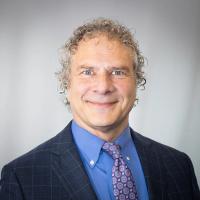
Perry FlynnM.Ed. CCC-SLP BCS-CL
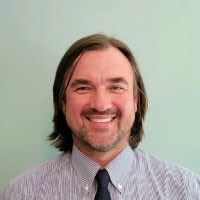
Matthew MartinezMA
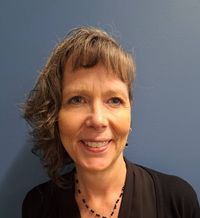
Maureen KaniukaMA, CAS
Welcome to Bright Conversations!
In this inaugural episode, hosts Sarah Bevier and Shontaye Glover Jones introduce Bright Conversations, a podcast created for Speech-Language Pathologists (SLPs) and the broader Special Education (SPED) community. Tune in to hear what inspired the podcast, who it's for, and what listeners can expect in future episodes.
Presenters

Shontaye Glover JonesMS CCC-SLP

Sarah BevierM.S. CCC-SLP
Turning Passion into a Thriving Business
In this episode of Bright Conversations, host Sarah sits down with two inspiring female entrepreneurs, Meredith Harold and Megan Sutton, to explore how they turned their passion into thriving businesses. They share their journeys from identifying gaps in the Speech-Language Pathology (SLP) field to creating impactful solutions, all while navigating the challenges of entrepreneurship.
Presenters
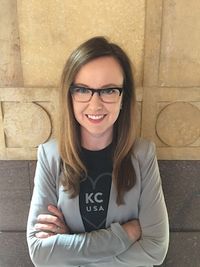
Meredith HaroldPhD, CCC-SLP
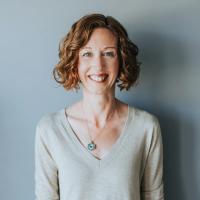
Megan Sutton MS, RSLP
Ethical EBP: How to Find Good Research You Can Actually Use
This presentation highlights user-friendly methods to access the External Evidence that is crucial to ethical EBP. It includes practical solutions that participants can use immediately, along with a guided walkthrough of selected resources and a brainstorming session so participants can develop an actionable plan to access research relevant to any subject. Applicable to any setting from schools to private practice to hospitals.
Presenter
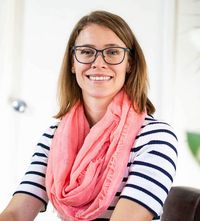
Jill ShookM.S. CCC-SLP
"You didn't cause this!” How an SLP can empower parents of children who stutter
Understanding the life experiences of students who stutter and their families is an essential part of successful therapy planning. Join Suzie, a mom of two children who stutter, and Hudson, a 15-year old on his own journey of navigating stuttering as they share some of the successes and challenges that they have faced in the therapy room, at school, and at home. These stories will provide practical strategies for SLPs to enhance support for students who stutter and their families. Experiential learning at its best!
Presenter
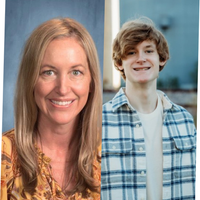
Suzie + Hudson Van Sickle
Stuttering at School: Pro-Tips for Collaboration
The primary goal of collaboration in the school setting is to develop allies for students who stutter. Collaboration is a foundational practice that provides a basis for building assessment and therapy practices that include client values. Educators, support staff, administrators, and peers all want to help but they are uncertain how to be supportive -or more troublesome – they hold outdated misconceptions about stuttering and about people who stutter. The best way to create a team atmosphere is by educating others about the true nature of stuttering. This course provides practical tips for helping listeners understand stuttering, align with neurodiversity principles of stuttering therapy, and create safe communication environments for students who stutter.
Presenter
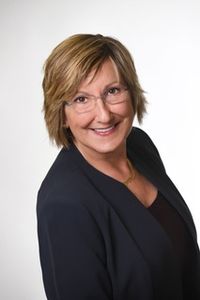
Nina ReevesM.S. CCC-SLP BCS-F
Everything Everywhere All at Once
People who stutter navigate a world shaped by societal communication norms. In this course, Gareth, a startup founder who stutters, shares his lived experiences and insights to highlight everyday barriers and opportunities for change. Speech-language pathologists (SLPs) and caregivers will learn how to foster more inclusive environments and provide meaningful, practical support in real-world situations.
Presenter
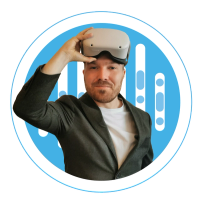
Gareth WalkomMSc
Stuttering through Childhood, Academia, Wall Street and Big Tech
George Daquila talks about how stuttering his entire life has made him who he is as a person and leader and what experiences shaped that.
Presenter
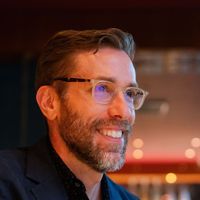
George DaquilaPhD
Calm, Cool, and… Completely Losing It Inside
This course will discuss the impact of stuttering from a parent’s perspective and clinical considerations for providing family-centered care. The speaker will describe the emotional turmoil that parents often experience, related to watching their child struggle, navigating conflicting recommendations, making tough choices about the kind of support to pursue, managing family interaction styles, advocating for their child, searching for resources, finding a community, and fostering communication confidence. The importance of supporting parents so that they can embrace and empower their kids will be highlighted.
Presenter
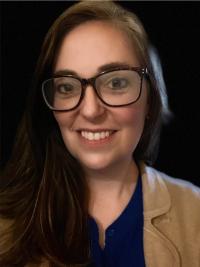
Keli LicataM.A., CCC-SLP
From Diagnosis to Advocacy: The Stuttering Community Can Help
This 30-minute course will provide insight into the lived experience of stuttering, emphasizing the need for speech-language pathologists to engage with and support the stuttering community. Through shared stories and perspectives, participants will gain a deeper understanding of the challenges faced by individuals who stutter and their families, encouraging a more compassionate and informed approach to therapy.
Presenter
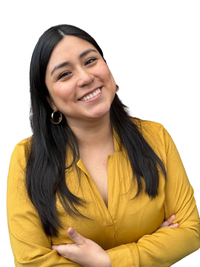
Angelica BernabeM.A. CF-SLP
Beyond the Stutter: Listening, Supporting, and Empowering
Stuttering is more than speech - it’s an experience shaped by emotions, identity, and social interactions. In this course, Jia, a person who stutters, shares her journey and gives voice to the inner needs of children and teens who stutter. Designed for families, speech-language pathologists (SLPs), and allies, this course explores how to create safe communication spaces, provide meaningful support, and move beyond fluency-focused approaches. Participants will learn practical strategies to empower individuals who stutter, challenge societal misconceptions, and foster confidence and self-acceptance - because every voice deserves to be heard.
Presenter
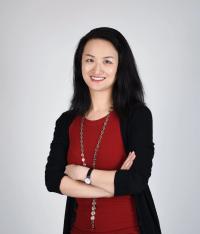
Jia BinM.A.
Supporting Children Who Stutter: Collaborating with Caregivers
Caregivers can help children who stutter, but only if they first overcome their own fears. This presentation will describe how speech-language pathologists can help caregivers come to terms with stuttering so that they can play a supportive role for their children.
Presenter
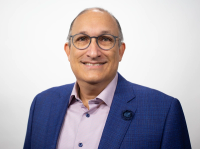
J Scott YarussPhD, CCC-SLP, BCS-SCF, F-ASHA
Inclusive IEP Meetings: Perspectives From All Sides of the Table
IEP meetings are critical for developing effective support plans, yet they can unintentionally create tension and hinder collaboration between caregivers and school teams. This course helps speech-language pathologists identify common practices that contribute to contentious meetings and explore the stressors caregivers face throughout the IEP process. Participants will learn proactive strategies to foster meaningful collaboration, enhance shared understanding, and create more inclusive and effective IEP meetings. Through a focus on culturally responsive communication and strategies to reduce caregiver stress, this course equips speech-language pathologists with tools to improve outcomes for students and their families.
Presenters
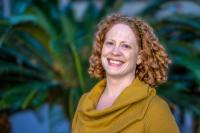
Caroline GaddyMFA, MA CCC-SLP
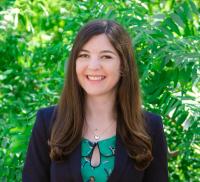
Bobbi AdamsBrownMA, CCC-SLP
Foundations of Communication Session #2
This presentation is designed for speech-language pathologists and teachers of students who have complex communication needs. The presentations stresses collaboration to create communication rich environments across the academic day that focus on the educational standards for these populations.
Presenters

Perry FlynnM.Ed. CCC-SLP BCS-CL

Maureen KaniukaMA, CAS

Matthew MartinezMA
Foundations of Communication Session #1
This presentation is designed for speech-language pathologists and teachers of students who have complex communication needs. The presentation stresses collaboration and offers methods to create communication rich environments across the academic day that focus on the educational standards for these populations.
Presenters

Perry FlynnM.Ed. CCC-SLP BCS-CL

Maureen KaniukaMA, CAS

Matthew MartinezMA
Unlocking Opportunities: A Beginner's Guide to School Contracting
Join us for this informative presentation tailored for Speech-Language Pathologists, occupational therapists, and physical therapists ready to explore the world of school contracting! In this session, you'll learn exactly what school contracting is, pros and cons to serving schools, and learn how to find and secure school contracts. Whether you're new to the field or looking to expand your career, this course will equip you with the essential tools and knowledge to thrive as a school contractor.
Presenter
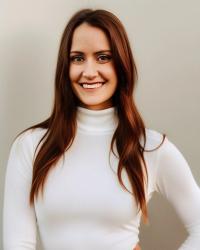
Elise MitchellM.S. CCC-SLP
The Unlikely Entrepreneur: Igniting the Entrepreneurial Spirit
Join us for an insightful course designed for professionals looking to integrate entrepreneurship into their practice. The course will also explore the unique challenges faced by minority clinicians, including systemic barriers and cultural biases, while highlighting the importance of building professional relationships and partnerships.
Presenter
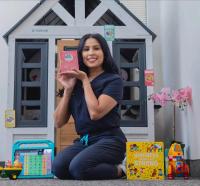
Farwa HusainM.S., CCC-SLP
Filling the Void: Realizing Your Worth to Open the Practice of Your Dreams
Have you ever felt the desire to open a private practice that you know will immediately fill a void and increase access to therapy for underserved populations in your community? Realizing your worth as a clinician is the first step. This course will discuss Dr. Jaramillo entrepreneurial journey and how she successfully transitioned from employee to business owner by understanding her niche, marketing her services, hiring an incredible team, and overcoming challenges to build a thriving business.
Presenter
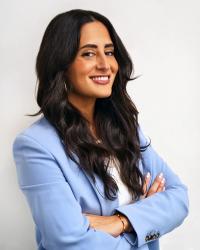
Ana-Maria JaramilloSLPD, CCC-SLP
Business Essentials for the Beginning Entrepreneur
Becoming an entrepreneur is a time of excitement. No doubt you want your business to be profitable and last a long time. While jumping two feet first into business sounds like a dream come true for many, there are steps that should be taken to set up and protect your business. This presentation will cover best practices to ensure your business is set up for success regardless of your industry!
Presenters

Shontaye Glover Jones MS, CCC-SLP

Sydney BassardMSP, CCC-SLP
They Won’t Do Their Homework! Tips for Supporting Speech Practice at Home
Do you ever receive feedback that speech homework just doesn't get done? Or perhaps you are looking for more realistic and achievable ways to support families with practicing speech sound goals at home? Whether you are working directly or indirectly with parents and caregivers, you will leave this session energized and confident with new strategies, practical activities, and problem-solving skills to individualize speech practice in the home environment.
Presenter
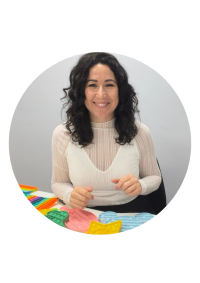
Rebecca ReinkingCPSP, CCC-SLP
Expressive Youth: Discovering the Power of Figurative Language
This course delves into the importance of understanding and assessing pragmatic language skills, particularly the production of figurative expressions in adolescents from diverse cultural and linguistic backgrounds. Participants will gain insights into the correlation between figurative language use and higher language functioning. Through a combination of practical examples, literature reviews, and data analysis, attendees will learn strategies to assess and identify higher functioning language skills such as the use of figurative expressions to increase diagnostic accuracy. *This course satisfies ASHA's DEI requirement*
Presenter
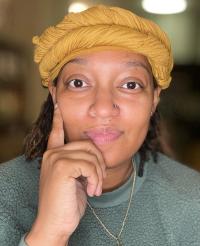
Shaleeta JonesM.S., CCC-SLP
The OFFER Method for Modeling on AAC with Gestalt Language Processors (GLP)
Modeling language is one of the most effective, evidence-based ways to support individuals who use Augmentative & Alternative Communication (AAC) and GLPs. This course introduces "The OFFER Method," a unique framework for offering language models that are effective and meaningful for gestalt language processors. Learn how to model language using AAC with your gestalt language processor as well as how to customize their device or use pre-stored messages that are readily available on their device to support ongoing language development.
Presenters
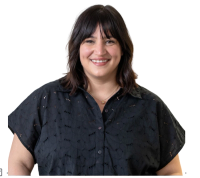
Nicole CaseyM.S., CCC-SLP
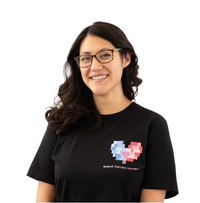
Amy ZembriskiMBA, M.S., CCC-SLP
From Evaluation to Implementation: Next Steps in AAC
Throughout this course, the attendee will be able to grasp a variety of Augmentative & Alternative Communication (AAC) assessment tools and gain tips and tricks to conduct a thorough and holistic AAC assessment. Attendees will also learn how to write appropriate and effective goals following the AAC assessment. Guidelines, procedures, and resources for device trials will be described as well. Lastly, SLPs will be given ideas and support to set a child's AAC team up for success with sustainable and innovative interventions and trainings.
Presenter
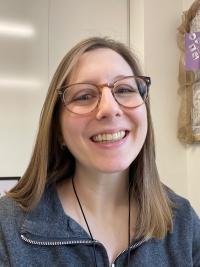
Randi BrownM.S., CCC-SLP
Advocacy in my journey: Assessing AAC in a multilingual & multicultural world
Learn about assessment and treatment advocacy considerations, evidence back suggestions, goal alignment, and solutions to challenges when assessing Augmentative & Alternative Communication (AAC) in multilingual and multicultural students, from the journey and perspective of a bilingual SLP work experience.
Presenter
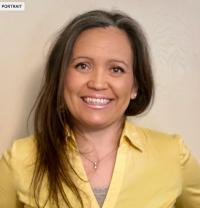
Lelis Nolasco-GarciaM.S., CCC-SLP
Supporting gestalt language processors with AAC
Learn about adapting AAC for GLPs. Amanda's & Paulina's international and multilingual clinical experience over the last few years has led them to numerous novel strategies and supports that have made a positive impact in the lives of their clients. Throughout this presentation, they will be sharing real-life examples and practical ideas including light tech AAC supports and adaptations for high-tech AAC (TD Snap, Proloquo2go, GRID for iPad, Avaz, and more). They hope to inspire and empower you as you support GLPs through AAC.
Presenters

Paulina EliasM.Cl.Sc. SLP Reg. CASLPO
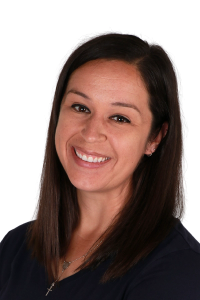
Amanda BlackwellSLPD, CCC-SLP
Simple AAC: starting and using a variety of AAC tools with new learners
Throughout the course, participants will:
*Learn about the importance of early Augmentative Alternative Communication (AAC) in fostering communication skills.
*Explore different AAC tools and technologies suitable for young children.
*Practice implementing AAC strategies in everyday interactions and play-based scenarios.
*Discover effective ways to support language development through AAC.
*Gain insights into adapting AAC techniques to meet the individual needs of new learners.
Participants will also have the opportunity to explore resources and see them in active use, as well as exploring innovative approaches to enhance communication experiences for children using AAC. By the end of the course, participants will be equipped with practical knowledge and skills to create a supportive environment where early AAC can thrive.
Presenter
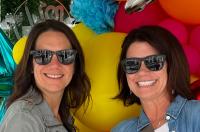
Amy Prince & Amber LaddMA-CCC, SLP, BCBA & CCC, SLP, BCBA
Dispelling Parent Myths about AAC Devices and Reduced Verbal Utterances
Free course!
Discover the proven benefits of incorporating AAC into your child's language development, and learn why these devices do not hinder, but rather complement, a child's natural speech. This course will help you equip your families and caregivers with the knowledge to make informed decisions about AAC and provide their child with the tools they need to thrive.
Presenter

Alice L WilliamsB.A., SLPA
Pathways to Progress: A Team Approach To Navigating IEP Meetings for Success
This engaging and insightful live panel discussion is designed for the entire IEP team, and will feature perspectives from special educators, parents, administrators, school psychologists and Speech-Language Pathologists (SLPs). This 90 minute discussion will highlight the importance of collaboration and creating space for multiple perspectives during IEP meetings. Our experienced panelists will share “what they wish you knew” from their respective roles and will offer valuable strategies to enhance teamwork, communication, and decision-making processes to better support students with diverse needs.
Presenters
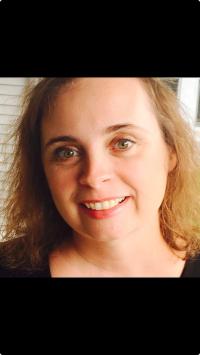
Anne Marie WagnerLCSW, MSW, MA
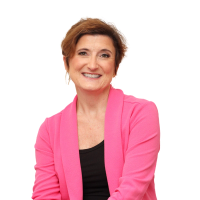
Jaime SpencerMS, OTR/L
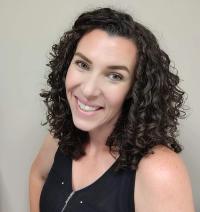
Jenn AdamsM. Ed
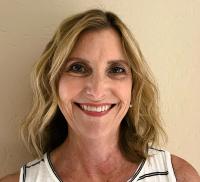
Jennifer ElliottPh.D., NCSP

Katelynn DohertyM.S., CCC-SLP

Trish GeraghtyM.Ed.
What you need to know about MTSS: A practical approach to implementation
This session is designed for educators and administrators looking to implement or enhance their Multi-Tiered System of Supports (MTSS) framework. Participants will learn foundational principles, key components, and strategies to address students' academic, behavioral, and social-emotional needs through a tiered support system. Attendees will leave with actionable insights and tools to create a data-driven environment that fosters student success and promotes an inclusive educational experience.
Presenter

Trish GeraghtyM.Ed.
Understanding and Managing Challenging Behaviors: PDA and ODD
Equip yourself with essential strategies to understand and manage the challenging behaviors associated with PDA and ODD. In this course, you will explore the distinct characteristics and underlying causes of these disorders, learn how anxiety and inflexibility contribute to behaviors, and discover effective, evidence-based strategies tailored for educational settings. Emphasizing flexibility, motivation, and positive reinforcement, this course provides techniques for building adaptive skills and creating supportive learning environments. Designed for special education professionals, this course emphasizes empathy and tailored interventions, aligning with current research and best practices to foster positive behavioral outcomes for students.
Presenter
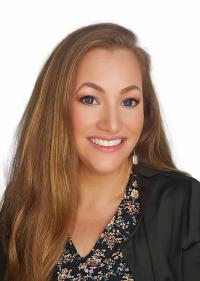
Rachel IrwinMS.Ed
Vision & Visual Perception in Post Covid Times
Designed for specialized instructional support personnel, this training equips you to identify hidden visual difficulties impacting behavior, motor skills, and reading ability, empowering effective intervention. Gain insights into misunderstood symptoms and understand the impact of technology on childhood development, including speech, language, motor skills, and vision. Master the skills to confidently recognize signs of visual difficulties and know when to refer for specialized care, ensuring optimal communication and academic outcomes for your students.
Presenter

Jaime SpencerMS, OTR/L
AT or AI: It's Apples and Oranges
Dive into AT & AI for educators! We'll showcase AI-powered AT tools, digital assistants, and strategies for building a more inclusive classroom.
Presenters
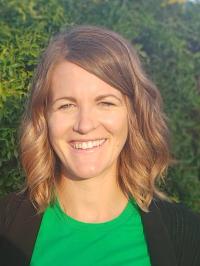
Samantha HagnessM.S., CCC-SLP
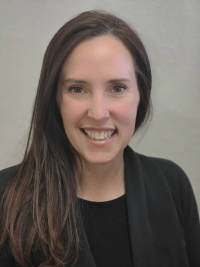
Becky Woolley
Using Artificial Intelligence for Speech Therapy Lesson Planning
This course reviews how a speech language pathologist can use Artificial Intelligence as a tool for speech therapy planning. Multiple online Artificial Intelligence tools were reviewed for lesson planning, material creation, material modification, progress monitoring and goal planning. Participants will be taught the benefits and risk factors of the new technology.
Presenter

Kristin TestaniM.S. CCC-SLP SDL
Beyond Surviving: Empowering Resilience in the Midst of Stress and Secondary Trauma
In this course, participants will identify symptoms of secondary trauma, the 4 A's to resilience, 3 types of stress; acute, episodic, and chronic, and the effects of stress on the brain. They will be able to apply methods and strategies to mitigate these symptoms and create action plans for resilience.
Presenter
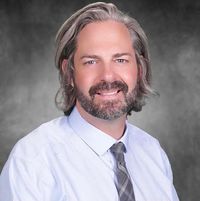
James BockM.Ed
An Introduction to Baby Sign Language
This course explores the impact on language development when teaching Baby Sign Language to a pre-verbal infant.
Presenter
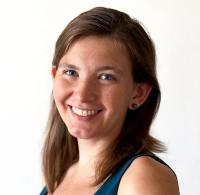
M. Summer SeymourM.S. CCC-SLP
Tips and Tricks for Executive Functioning in the Clinic and Classroom
Executive Functioning difficulties can make social and academic settings challenging. This course provided participants with a working definition of the term "Executive Functioning" and detailed the elements of emotional control, self regulation, planning, organizing, execution and more. Speech Language Pathologists were offered strategies to use with students immediately!
Presenter
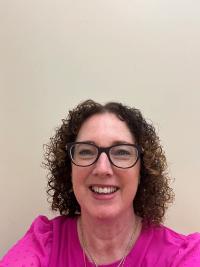
Danielle MooreM.S. Ed CCC SLP
Intersections of Neurodiversity, Child Development, and Learning Theory
Discussion from this session will include how to chart pathways forward for neurodiversity as a crucial component of training and practice for practitioners. In addition, attendees will reach a fuller understanding of how to navigate through the nuances of neurodiversity in order to best meet the needs of children, students, and clients. The information presented from this session, and resulting discussion, have implications for advocacy. This session directly aligns to increasing diversity, equity, and inclusion within the discipline and the Association (an ASHA strategic objective), as well as to making human communication, a human right, accessible to all.
Presenter

Kyle Greene-PendeltonM.S CCC-SLP
Spilling the Intersectionali-Tea: Holistic and Affirming Voice and Communication
This course discusses a framework to guide the clinician in making holistic and affirming choices throughout the episode of voice and communication care. While this course could not possibly cover all vulnerable population examples, it strives to offer an accessible approach to authentically centering client’s needs given possible intersectional considerations.
Presenter

Ruchi KapilaM.S., CCC-SLP
Equity & AAC: Reimagining education, literacy, and linguistic justice in practice
In this session, we will discuss utilizing multi-tiered systems of support (MTSS) and the descriptive teaching model to support AAC users with accessing and participating in comprehensive educational and literacy instruction and experiences. Additionally, we will review a case study to illustrate the power of MTSS and descriptive teaching in the quest to reimagine education, literacy, and linguistic justice in practice. Lastly, this course will provide some considerations and resources for the implementation of MTSS and descriptive teaching with AAC users.
Presenter
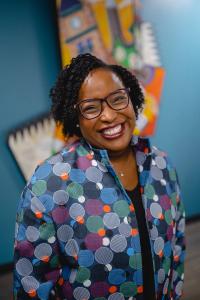
Karina SaechaoM.A., CCC-SLP, ATACP
Let's Talk About Illiteracy
Literacy is a social justice issue! One of the obstacles that prevents children from being proficient readers and spellers is access to knowledge. Even though we know how the brain learns to read, we still have shocking levels of illiteracy in Canada and the US. Throughout the past five decades, the science of reading has provided ample evidence that structured literacy is the approach that should be used to support all learners. Yet many educators and caregivers are still using a balanced literacy approach. In this workshop, we will answer 3 important questions. How does the brain learn to read? Why should we ditch the 3-cueing system and leveled readers? What skills should we explicitly teach our students? Participants will learn about six critical components that support children on their journey to becoming proficient readers and spellers.
Presenter
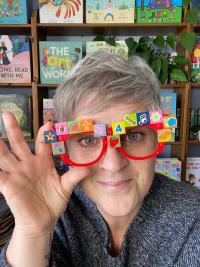
Hanna Stroud
Gender Inclusive Language with Children: What, Why, and How
In this introductory course, participants will operationalize a definition of gender inclusive language and the incredible need for practitioners to adopt and teach gender inclusive language with children. Using age-relevant strategies and pedagogy rooted in LGBTQ inclusive research, participants will learn key strategies (that are also fun!) for encouraging gender inclusive language with children to create safer spaces for our youth.
Presenter
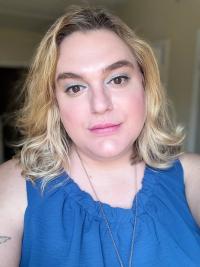
Dolly JenkinsEd.D.
Examining Culturally-Sustaining SLP Practices
A mere 8% of practicing SLPs indicated that they identify as a person of color, and this number has remained consistent over many years. Additionally, only 8% of practicing SLPs self-identified as multilingual providers having the necessary qualifications to provide services in languages other than English. According to the 2022 United States (U.S.) Census data, approximately 43% of the general U.S. population identifies as being from a culturally diverse racial group and over 20% of children speak another language other than English at home. The result of these demographic phenomena is that there are often profound communication breakdowns, cultural disconnects, and numerous healthcare disparities in the referral and assessment process. This course will discuss the lack of diversity in the field, healthcare disparities, overarching themes from qualitative data, and actionable steps to increase equity in the field.
Presenter

Ana-Maria JaramilloSLPD, CCC-SLP
Diagnostic Humility: Admitting We Don't Know It All
This course delves into the concept of diagnostic humility in the day-to-day practice of speech-language pathology. Designed for seasoned clinicians who feel like they have “seen it all”, this course will explore the nuances between humility, confidence, and expertise in diagnostic and assessment processes. Additionally, there will be a focus on how the relationships with our patients and their families can be affected by the ways we approach diagnostics through a combination of theoretical discussion, case examples, and self-reflection.
Presenter
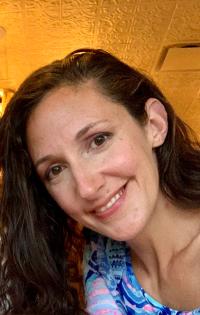
Amanda HitchinsM.S CCC-SLP
Equity Series LIVE Town Hall- Get Involved!
In this engaging panel discussion, we bring together experts in the areas of speech and language sciences, education, neurodiversity-affirming care, literacy, AAC and diagnostics to spark meaningful dialogue, share best practices, and cultivate a deeper understanding of how to create equitable environments in various settings. Whether you're an educator shaping young minds, a clinician supporting individuals' communication needs, a parent navigating systems for your child, or an administrator driving systemic change, your perspective and expertise are invaluable to this conversation. Throughout this course, our esteemed panelists will shed light on research and practices that lead to inequities in our fields. They will also provide strategies to dismantle barriers and necessary tools to advocate for inclusive spaces and enhanced communication practices.
Presenters

Shontaye Glover JonesMS CCC-SLP

Kyle Greene-PendeltonM.S CCC-SLP

Amanda HitchinsM.S CCC-SLP

Ana-Maria JaramilloSLPD, CCC-SLP

Dolly JenkinsEd.D.

Hanna Stroud

Karina SaechaoM.A., CCC-SLP, ATACP

Ruchi KapilaM.S., CCC-SLP
The Ethical Implications of Dynamic Assessment in School-based SLP Services
This course is designed for speech-language pathologists (SLPs) seeking to enhance their understanding of ethical considerations in dynamic assessment. Gain practical insights into ethical decision-making specific to dynamic assessment and enhance your professional competence and confidence. This course is a must-see for SLPs working in schools, early intervention, or related educational settings, as well as professionals seeking to navigate ethical challenges in dynamic assessment.
Presenter

Anuj BhatnagarSLP.D. CCC-SLP
“Issa Hit or Miss”: The Impact of ADHD on Communication and Interaction
This course will provide professionals with information about Attention Deficit/Hyperactivity Disorder (ADHD) and its impact on communication and interaction. It will introduce, or review, the characteristics of ADHD-Inattentive type, ADHD-Hyperactive type, and ADHD-Mixed type. It will discuss the areas of the brain impacted by ADHD, the stigma and/or misconceptions attached to it, and the importance of applying neurodiversity-affirming care. Finally, it will provide specific examples of the communication differences and challenges that are seen in people with ADHD, as well as strategies for providing neurodiversity-affirming support. Attendees will walk away with practical information that may be applied immediately to empower and advocate for those with ADHD, educate others on ADHD, and provide meaningful intervention strategies to people with ADHD.
Presenter
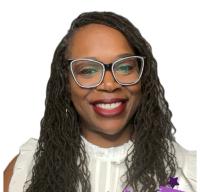
Aieshea BanksPh.D, CCC-SLP, ASDCS, ADHD-RSP
SLP Literacy Guide Chapter IV: Speech Sound Disorders and Literacy Development
Children with speech sound disorders are at risk for co-occurring literacy deficits that can have long-term impacts on their academic success. As such, speech-language pathologists play a critical and direct role in the identification and remediation of literacy deficits for children with speech sound disorders. Substantial evidence in the literature shows that children with speech sound disorders are at risk for co-occurring literacy deficits which may impact a variety of pre-literacy or literacy skills including poor phonological awareness, word reading, morphological awareness, and orthographic knowledge. The risk for literacy deficits in children with speech sound disorders substantially increases for children who have a co-occurring language impairment, for children whose speech errors persist after literacy instruction has begun, or when children exhibit production of atypical phonological errors. The risk for literacy deficits in children with speech sound disorders is unsurprising given the phonological nature of both speaking and reading and the amount of overlap in the phonological skills needed to support both. In this course, we review the theoretical underpinnings for the overlap in speech sound disorders and literacy deficits and provide guidance for integrating literacy support into speech therapy for children with speech sound disorders.
Presenter
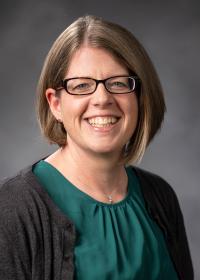
Katy CabbagePhD CCC-SLP
SLP Literacy Guide Chapter II: School-age Literacy Considerations
Children with speech and language impairments are at significant risk for co-occurring literacy deficits that last well into the formal schooling years and beyond. These deficits may include children with dyslexia, who exhibit a significant difficulty decoding written text for meaning, and children with poor language comprehension which may make it difficult for children to comprehend complex linguistic structure associated with literary contexts. Speech-language pathologists have extensive expertise in subcomponents of linguistic structure that support literacy development through phonological skills and comprehension through semantics, morphological, and syntactic knowledge. In this presentation, we will briefly review more advanced literacy skills beyond phonological awareness, phonics, and other early literacy skills that are necessary to succeed academically in older elementary and secondary grades. We will discuss specific ways speech-language pathologists can provide support for these later literacy skills through appropriate assessment and intervention techniques.
Presenter

Katy CabbagePhD CCC-SLP
SLP Literacy Guide Chapter III: Considerations for Children with Language Disorders
Co-occurring language and reading difficulties are highly prevalent. After all, reading involves accessing and comprehending language in written form, such that language skills are tightly interwoven with the ability to read and comprehend text. This presentation will review the key components of language that are crucial for learning to read and comprehend text. Thereafter, we will discuss the highly elevated risk for reading difficulties among children with language disorders. In this discussion, we will review and clarify terminology used to describe children with language disorders, including the classification of developmental language disorder (DLD). This course will then provide specific recommendations for how speech-language pathologists can concurrently support language and literacy development among children with language disorders within their direct scope of practice.
Presenter
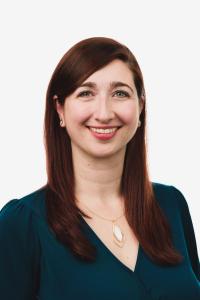
Jennifer ZukPhD CCC-SLP
SLP Literacy Guide Chapter I: Early Building Blocks of Literacy
The intricate process of learning to read relies on acquiring several speech and language-related sub-skills, which starts well before the onset of formal reading instruction. Speech-language pathologists have an important opportunity to facilitate the development of crucial building blocks for literacy from preschool age, through targeting key predictors of long-term reading outcomes such as phonological awareness. This presentation will provide an overview of the speech and language-related sub-skills that serve as fundamental early building blocks for literacy development, and discuss the role of a speech-language pathologist in supporting children’s readiness for learning to read in early childhood. This course will then review emergent literacy skills and early literacy milestones. We will specify important opportunities speech-language pathologists have to target and monitor children’s emergent language and literacy skills within their direct scope of practice.
Presenter

Jennifer ZukPhD CCC-SLP
Embracing Literacy: An SLP’s Guide to supporting children’s literacy development
This course equips speech-language pathologists with essential knowledge and strategies to support literacy development in children at risk for reading difficulties, including developmental dyslexia. Participants will explore the foundational processes of reading development, examine the speech and language components linked to literacy outcomes, and gain practical intervention tools to close critical gaps in early reading proficiency.
Presenters

Katy CabbagePhD CCC-SLP

Jennifer ZukPhD CCC-SLP
Potenciando la Comunicación Aumentativa y Alternativa
Aprende el alcance de la comunicación aumentativa y alternativa (CAA) en "Liberando la potencial de la comunicación: comunicación aumentativa y alternativa para comunicadores emergentes" un curso integral que explora este campo transformador. Esta conferencia sumerge a los estudiantes en la teoría y la práctica detrás de la CAA, enfatizando su papel en el fomentando las habilidades de comunicación en comunicadores emergentes con necesidades de comunicación complejas. Al interactuar con este material, los participantes pueden esperar obtener conocimientos más profundos sobre la ciencia y la aplicación de las prácticas de CAA mientras perfeccionan su capacidad para apoyar a los comunicadores emergentes. Durante el curso, examinamos cómo se desarrolla la CAA y nos centramos en las necesidades y dificultades de los comunicadores emergentes. Investigamos estrategias clínicas basadas en evidencia (PBE) para demostrar su eficacia en mejorar los resultados de comunicación para esta población. Además, este programa no se limita únicamente a las teorías; proporciona a los asistentes herramientas prácticas que pueden implementarse. Se abordarán los avances de la investigación en curso en el campo de la CAA. A lo largo de la conferencia, los asistentes comprenderán la CAA y observarán su impacto positivo en los comunicadores emergentes que tienen necesidades de comunicación complejas. Además, la conferencia explorará la aplicación práctica de CAA en entornos clínicos y profundizará en diversos esfuerzos y avances de investigación.
Presenters
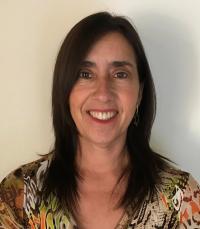
Karla ArmendarizM.A. CCC-SLP
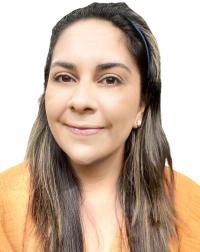
Claudia MarimónProfesora de Educación Especial
La Ecolalia dentro del Desarrollo Gestáltico del Lenguaje
Este curso presentará a los participantes la investigación fundamental que apoya el procesamiento gestáltico y el desarrollo gestáltico del lenguaje, que es la forma en que muchos niños que utilizan la ecolalia adquieren el lenguaje. Se explorarán ejemplos de gestalts del lenguaje, descrito por Ann Peters. Los participantes aprenderán sobre el proceso de Adquisición del Lenguaje Natural (NLA) creado por Marge Blanc después de 15 años de investigación clínica, que describe y cuantifica las seis etapas del desarrollo del
Presenters

Paulina EliasM.Cl.Sc. SLP Reg. CASLPO

Amanda BlackwellSLPD, CCC-SLP
¿Crecer bilingüe? Comprender el desarrollo lingüístico en múltiples idiomas
Hay tantos mitos y malentendidos sobre el desarrollo lingüístico en los niños multi/bilingües, así que es importante entender lo que los expertos *en el tema* recomiendan. Estos mitos se siguen pasando de profesional a profesional, de profesional a familia, de familia a familia y nosotros tenemos la responsabilidad y el privilegio de empoderarnos con los datos para ponerle fin a estos malentendidos. En este curso aprenderemos los conceptos fundacionales del desarrollo bilingüe, exploraremos las semejanzas y diferencias entre el desarrollo lingüístico en un niño monolingüe vs. bilingüe, y confrontaremos los mitos más comunes – como: “El bilingüismo confunde a los niños” – con la ciencia que los anula. Al terminar el curso el participante se sentirá seguro de como embarcar las preguntas más frecuentes del desarrollo linguistico bilingüe!
Presenter
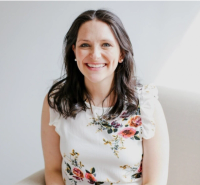
Claudia Serrano JohnsonMS, CCC-SLP
Desarrollo fonológico en español
El desarrollo fonológico del habla es un proceso complejo que comienzan desde una edad temprana y evoluciona, a medida que los niños adquieren habilidades lingüísticas y cognitivas más sofisticadas. El desarrollo fonológico es un proceso clave en la adquisición del lenguaje. Algunos puntos destacados del curso sobre desarrollo fonológico son: 1. Reconocimiento temprano de diferencias acústicas en palabras. 2. Habilidades proto-comunicativas y la influencia de la prosodia en la comunicación. 3. La formación de categorías vocálicas alrededor de prototipos a los seis meses de edad. 4. La influencia de las regularidades en los patrones de sonidos en la percepción de las fronteras entre las palabras en el habla fluida. 5. La influencia de la lengua materna en la percepción del habla y la importancia de la exposición a una lengua no nativa. 6. La capacidad de los niños bilingües para distinguir entre dos lenguas desde una edad temprana. 7. El desarrollo de la sensibilidad para las dependencias sintácticas y la influencia de la longitud de los adverbios en la percepción de la dependencia sintáctica. 8. Procesos fonológicos típicos en el desarrollo fonético/fonológico 9. Edad de adquisición de los sonidos del español
Presenter
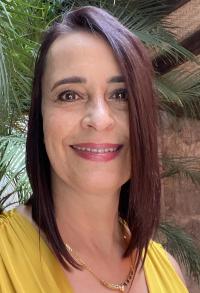
Alejandra Auza B.P.hD.
Promoción de Destrezas del Lenguaje Mediante la Lectura Compartida
La lectura es un proceso complejo que implica dos destrezas fundamentales. La primera es nuestra capacidad para reconocer palabras con precisión y sin ninguna dificultad. Se denomina lectura de palabras y se desarrolla a través de tres habilidades de alfabetización temprana. La segunda es nuestra capacidad para comprender y monitorear el lenguaje hablado, lo que se denomina comprensión auditiva; se construye a partir de habilidades lingüísticas como el conocimiento del vocabulario y la gramática, y habilidades cognitivas como la inferencia y el monitoreo de la comprensión. Una vez que los niños pueden identificar palabras sin esfuerzo, el éxito en la lectura depende de la comprensión auditiva, una destreza que muchos investigadores creen que comienza a desarrollarse desde el nacimiento en la medida que los niños interactúan con su entorno de lenguaje en el hogar. En esta sesión, los participantes aprenderán sobre estas destrezas fundamentales y factores que pueden afectar negativamente el éxito de la lectura de los niños. También aprenderán cómo fomentar a través de la lectura compartida el desarrollo del vocabulario, la inferencia y el monitoreo del lenguaje oral en niños en edad preescolar. Finalmente, los asistentes recibirán recomendaciones prácticas que pueden ofrecer a los padres para fomentar el desarrollo del lenguaje oral de manera temprana desde el hogar.
Presenters
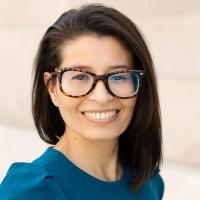
Carol MesaPhD
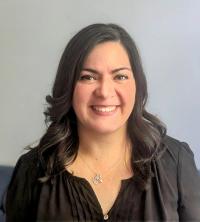
Mirza Lugo-NerisPhD, CCC-SLP
Inicio tardío del lenguaje: el camino a un diagnóstico diferencial
Este curso presentará a los participantes la investigación fundamental que respalda la clasificación del Inicio Tardío del lenguaje para poder comprender todos los posibles diagnósticos que pueden ser parte de esta categoría para después comprender las diferencias que hay entre ellos y así lograr de mejor forma un diagnóstico diferencial; además se revisarán estrategias de intervención temprana según las características del lenguaje y la comunicación de diferentes niños. This course will introduce participants to the fundamental research that supports the classification of Late Talkers in order to understand all the possible diagnoses that may be part of this category and then understand the differences between them and thus better achieve a differential diagnosis; In addition, early intervention strategies will be reviewed according to the language and communication characteristics of different children.
Presenter
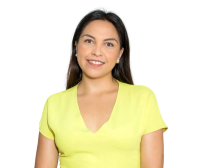
Mtra. Ximena CarretoM.Ed.
Toddler, Spanish, and Apraxia Oh My? A How-To for SLPs
Apraxia intervention can feel a little overwhelming – it’s a more specialized area than what many of us were exposed to in graduate school and the cases might be few and far between. Research has outlined the principles of motor learning and there are several efficacious approaches we could employ. But much has been studied with school-age, English-speaking children. So how do we apply this highly repetitive, focused protocol to young children? Furthermore, it is estimated that 48% of children enrolled in early intervention belong to a racial/ethnic minority group, of those children, up to 75% are Spanish-speaking. How does a SLP even approach this? This session will discuss how a family-centered approach is an evidence-based intervention. When we center families, honor their home language use and expertise, then we can provide balanced, meaningful and efficacious intervention. This session will discuss the bilingual intervention research as it applies to apraxia. Spanish intervention will be highlighted, demonstrating assessment measures, target selection, and available resources.
Presenter
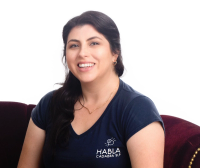
Jacquilyn AriasM.A., CCC-SLP
Demystifying Speech Sound Disorders in Bilingual Populations
The percentage of bilingual children in the U.S. continues to grow every year. It is likely that speech pathologists around the country will encounter at least one bilingual student on their caseload, if not many more. Unfortunately, there are endless myths and misunderstandings within parent and professional circles regarding bilingual speech & language development. These perpetuate inappropriate recommendations and practices which lead to heritage language loss within immigrant communities. Therefore, equipping both monolingual and bilingual speech-language pathologists (SLPs) with evidence-based knowledge plus practical resources for working with bilingual children is essential. In this course, SLPs will be introduced or will review phonological processes in monolingual and bilingual typically developing children. From that foundation, they will engage in thinking critically about the similarities and differences between the groups of children. This will ensure a clear understanding of the difference between expected bilingual speech sound development versus atypical/disordered speech sound development. Finally, SLPs will learn practical tips and strategies such as songs, books, for treating these disorders in a culturally and linguistically appropriate way that aligns with the ASHA code of ethics and IDEA law.
Presenter

Claudia Serrano JohnsonMS, CCC-SLP
How to Code Speech Sound Disorders When Billing Insurance
This course increases the proficiency of speech-language pathologists in private practice, helping them to accurately categorize speech sound disorders based on patient history and current presentation for the selection of the appropriate International Classification of Diseases (ICD) and Current Procedural Terminology (CPT) code for insurance reimbursement. Through case studies, the presenter will demonstrate how to synthesize available data to code the client’s presentation appropriately.
Presenter
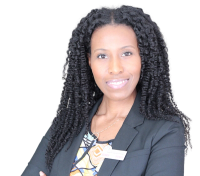
Anesha (Nesh) FrazerMS, CCC-SLP
Exploring Childhood Apraxia of Speech and Cultural and Linguistic Diversity
Childhood Apraxia of Speech (CAS) is a speech sound disorder that is estimated to occur in 1 to 2 children per 1,000 (Shriberg et. al. 1997). SLPs often experience challenges when differentiating CAS from other speech sound disorders and have varied degrees of confidence in the management of CAS. Requisite knowledge of CAS is critical in the assessment and intervention processes. If a child is not accurately diagnosed this can lead to incongruent intervention practices and thwart the child’s progress. SLPs will often face managing care of children from culturally and linguistically diverse backgrounds (CLD). Around 23% of school age children in the US are from households where languages other than English are spoken (FIFCFS, 2019). Nearly 16% of children from diverse backgrounds have a communication disorder and 95% of SLPs report serving at least one client from a culturally and linguistically diverse background (CLD) (NIDCD, 2016; Kritikos, 2018). As the U.S. landscape is becoming more culturally and linguistically rich, it is essential that SLPs are equipped with the knowledge and skills to address speech sound disorders like CAS and provide linguistically responsible and responsive services. Instilling these areas of knowledge and skills are particularly important as the majority of SLPs are monolingual and are not from CLD backgrounds. This course will provide SLPs with the foundational knowledge necessary to navigate CAS and differentiate it from other speech sound disorders. This course will also explore considerations in assessment and intervention planning for children from CLD backgrounds.
Presenter
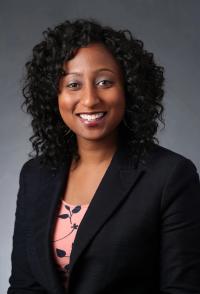
Alayna E. TownsendPh.D. CCC-SLP
Elicitation Tips and Intervention Options for Treating Cluster Reduction
Many children with speech sound disorders have difficulties using consonant clusters. This session will explore the different theories and intervention approaches you can use to treat consonant cluster reduction so that you have more therapy options. Furthermore, participants will expand their toolkit with different production cues designed to assist them in troubleshooting and effectively teaching consonant clusters.
Presenter

Rebecca ReinkingCPSP, CCC-SLP
Is It Discriminative? Understanding the Different Characteristics of CAS
While a definitive characteristic for childhood apraxia of speech (CAS) remains elusive, it's noteworthy that discriminative characteristics indicative of CAS do exist. In this course, we will comprehensively examine all the features associated with CAS, distinguishing between discriminative and non-discriminative traits. Through the use of therapy videos, we will engage in exercises to identify both types of characteristics. By the end of this course, participants will gain enhanced confidence in identifying CAS-specific characteristics and a deeper comprehension of the discriminative attributes.
Presenter
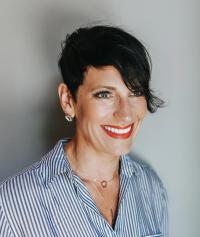
Jennie BjoremM.A. CCC-SLP
Residual Articulation Errors Among Older Kids: Misconceptions & Solutions
Do you have older kids and teens on your caseload still workig on /ɹ/ or /s/? Do you wonder if there’s really anything more to be done to help them remediate these stubborn errors? This 1-hour course will help you decide what additional assessment and treatment considerations can be used to help these kids push past the “stall”. Learn how strategies for elicitation should differ for older clients, strategies for generalization, how to address lack of motivation, and considerations for dismissal.
Presenter
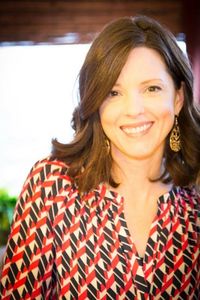
Amy GrahamMA, CCC-SLP
Clearing the Air: Debunking Speech Sound Disorder Misconceptions
Amy, Rebecca, and Jennie are speech-language pathologists (SLPs) who have a special interest and extensive experience in assessing and treating a wide range of speech sound disorders. This three hour course will target common misconceptions about treating speech sound disorders and offer real-world strategies for combating those misconceptions. First, participants will learn the difference between articulation and phonological-based errors, as well as strategies for effective intervention for both subtypes. Second, they will learn strategies for elicitation and treatment of /k/ and /g/ sounds. Finally, participants will learn about common misconceptions regarding assessment and treatment of childhood apraxia of speech.
Presenters

Jennie BjoremM.A. CCC-SLP

Amy GrahamMA, CCC-SLP

Rebecca ReinkingCPSP, CCC-SLP
Parent Coaching Strategies for AAC in the Home
This session will address the importance of parent involvement with AAC in the home setting. Research shows that when parents have the tools and strategies to support AAC implementation they model more words and feel more confident with the device. For SLPs, knowing how to use a coaching service delivery model can increase the positive outcomes of AAC for your clients.
Presenter

Emily DiazMS CCC-SLP
Introduction to Gestalt Language Processing and AAC
This session will address what we know (and don’t know) about everyday clinical practice for our AAC users that are Gestalt Language Processors. We will share both family and professional experiences, while also addressing the research, identifying speaking/non-speaking GLPs, AAC app feature matching, the theory of programming, & implementation.
Presenter

Emily DiazMS CCC-SLP
Does Everyone Have a Voice? Ensuring Equitable AACcess to the Black Diaspora
This course will educate and empower clinicians to identify the persistent barriers to AAC services, systems, and support to Black children and provide actionable steps to overcome these disproportionate and persisting hurdles that these young, Black AAC users and their families face. We will discuss the importance of early identification and implementation of AAC in this community. Additionally, this course will also focus on AAC considerations when working with members of the Black community. Lastly, we will discuss solutions for providing appropriate assessments, services, and tools for Black, pediatric AAC users and their families and communities.
Presenter

Karina SaechaoM.A., CCC-SLP, ATACP
AAC Implementation in the Classroom
Authentic inclusion in mainstream education poses challenges for every student. This session aims to explore effective strategies for supporting Augmentative and Alternative Communication (AAC) users in both social and academic aspects of the general education classroom. Focusing on peer support and integration of AAC, we will discuss ways to benefit all learners. Additionally, we will delve into the descriptive teaching model, and examine its potential for academic differentiation. Join us for a dynamic session brimming with practical ideas, facilitating meaningful curriculum interactions and fostering a rich social environment for all students. Get ready for an engaging and educational experience!
Presenter
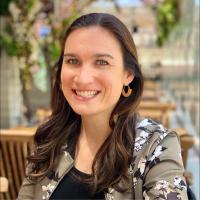
Sarah GregoryM.S. CCC-SLP
AAC Unveiled: Dispelling Myths and Empowering Communication - A Panel Discussion
Join us for this enlightening panel discussion, where you will gain valuable insights into the world of an AAC user, discover inspiring success stories, and acquire the tools needed to advocate for inclusive communication practices. Whether you are a caregiver, educator, therapist, or someone interested in empowering individuals with communication difficulties, this course will provide you with a deeper understanding of AAC's potential and power.
Presenters
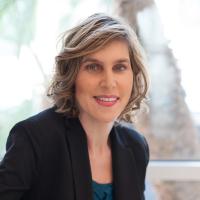
Krista Howard
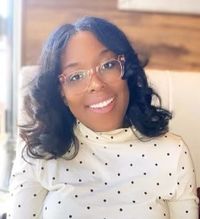
Cara FaladeM.A., CCC-SLP

Sarah GregoryM.S. CCC-SLP

Emily DiazMS CCC-SLP

Karina SaechaoM.A., CCC-SLP, ATACP
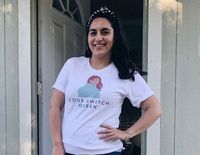
Alma PartidayM.A., CCC-SLP

Melissa TapiaM.S., CCC-SLP
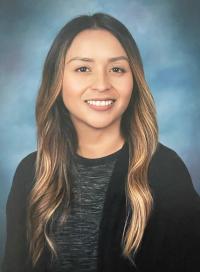
Maria De LeonM.S., CCC-SLP
Let’s Get Digital! Engaging Activities to Support AAC Learning
Pandemic teaching introduced us to a whole new world of digital activities, which can still be used during in-person therapy and teaching. This session will explore easy-to-acquire and highly engaging digital materials to support AAC learning. Come and fill your toolbox with resources that will make AAC support fun and functional!
Presenter

Sarah GregoryM.S. CCC-SLP
Unlocking the Potential: A Guide to AAC Candidacy
This session addresses the hesitation and uncertainty surrounding the early implementation of Augmentative and Alternative Communication (AAC). An overview and practical information will be provided to determine which populations would benefit from AAC. Participants will review a variety of case studies and determine if an individual is a candidate for high tech AAC or what alternative supports would be beneficial. This course will also present resources for access to high tech AAC as well as how to find additional support.
Presenter

Cara FaladeM.A., CCC-SLP
Enhancing Your Culturally Responsive Bilingual AAC Intervention Tool Belt
In this session, we will be reviewing expansion, aided language stimulation, descriptive teaching, Milieu teaching, shared book reading, core word, and total communication intervention strategies with dual-language learners. We will identify language dominance, how to observe communication partners, identify AAC users' environments, interviewing stakeholders, identifying appropriate vocabulary, and demonstrating implementation of dual-language for bilingual and monolingual SLPs. Our presentation will include demonstration sessions of the various implementation strategies and language/literacy therapy ideas.
Presenters
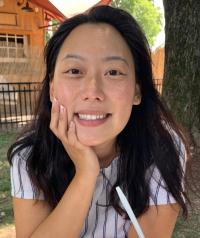
Eunsey (Sarah) LeeM.S. CCC-SLP

Melissa TapiaM.S., CCC-SLP
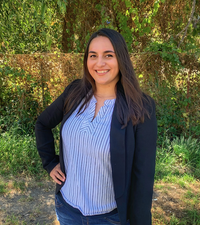
Alma PartidaMA, CCC-SLP

Maria De LeonM.S., CCC-SLP
Jump Start to AAC: Rethinking AAC Participation and Services
This session will provide an introduction to Augmentative and Alternative Communication (AAC) systems. We will bust common AAC myths such as the candidacy model and the expert model. We will discuss who can benefit from AAC and best practices. We will provide definitions for common terms you will hear throughout the conference such as Aided Language Input, and robust AAC. This session will also discuss language variety, bidialectalism, and bilingualism. We will discuss the different forms of AAC and how and why centering and understanding an individual's cultural heritage and language experiences inform our practices. We will identify and discuss barriers to accessing services based on our professional, clinical experiences and the AAC research literature. Lastly, this session will outline and discuss actionable steps that practitioners can immediately utilize to mitigate some of these barriers; discuss solutions such as utilizing a family-centered approach; and how to implement a culturally responsive approach to assessments, device selection, service delivery, and implementation of tools.
Presenters

Emily DiazMS CCC-SLP

Cara FaladeM.A., CCC-SLP

Sarah GregoryM.S. CCC-SLP

Karina SaechaoM.A., CCC-SLP, ATACP

Maria De LeonM.S., CCC-SLP
School-Age Stuttering Series
Do you search social media and teacher sites for stuttering assessment and therapy activities? Do you feel unorganized, and find yourself grabbing whatever is easy, free, and quick - without knowing the principle behind the practice? Do you wonder how to adapt your stuttering therapy to align with neurodiversity principles? This course will help with that! Nina and Scott will describe the changing roles of SLPs, and the changing goal focus of disability-informed stuttering therapy.
Presenters

Nina ReevesM.S. CCC-SLP BCS-F

J Scott YarussPhD, CCC-SLP, BCS-SCF, F-ASHA
What Do I Say Now? Answering Tough Questions From Caregivers
Many speech language pathologists feel less than comfortable collaborating with parents, teachers, and other caregivers who impact the environment of students who stutter. This session provides concrete, “use-on-Monday” frameworks for how to confidently respond to challenging questions from caregivers.
Presenters

Nina ReevesM.S. CCC-SLP BCS-F

J Scott YarussPhD, CCC-SLP, BCS-SCF, F-ASHA
Taking Skills on the Road
So, great therapy is happening, and now what? How do we get to the next level? How can we solidify skills learned inside of the therapy room and take them to the classroom, home and beyond? This session explores 3 concepts that support systematic transfer and generalization of student-adapted skills into the real world.
Presenter

Nina ReevesM.S. CCC-SLP BCS-F
Stuttering Therapy in a “Neu” Era: How Do The Strategies Fit In?
No longer do students who stutter need to conform to societal expectations of fluent speech. Neurodiversity-informed therapy shifts the focus away from fluency - and toward acknowledging and accepting stuttering as a natural communication difference. Where does this leave the “tools?” Are they still a part of therapy? This session will explore the new role of communication strategies and how they fit into stuttering therapy.
Presenter

Nina ReevesM.S. CCC-SLP BCS-F
I Can Do That! Helping Students Overcome Challenges
Guiding students through the process of stuttering therapy requires that clinicians understand how people face challenges and make changes in their lives. This presentation will describe a broad model of the process to help clinicians see how to incorporate problem-solving skills, creativity, and new ways of thinking into therapy, so that their students will be better prepared to face the many challenges associated with stuttering.
Presenter

J Scott YarussPhD, CCC-SLP, BCS-SCF, F-ASHA
You Want Me To Do What? Building Trust with Students and Caregivers
To be successful in stuttering therapy, students need to be able to take risks and try new approaches for coping with stuttering. To help students accomplish these necessary goals, clinicians need to be able to build trust with students and caregivers alike. This presentation will review key counseling skills for listening and responding to students in order to build a strong therapeutic alliance and develop trust as a foundation for every aspect of therapy.
Presenter

J Scott YarussPhD, CCC-SLP, BCS-SCF, F-ASHA
Are You the One?
This session chronicled the lessons of the seven decade life of a stutterer who has experienced both the hardship and joy of living in a world that does not understand stuttering. The presenter highlighted several of his interactions with speech-language pathologists along the path toward coming to terms with - and embracing -his communication difference.
Presenter
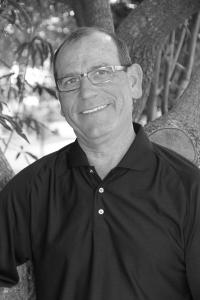
Lee ReevesDVM
Stutter Stories
The best way to learn about the experience of stuttering is to hear from people who stutter! In this course, the presenter (who stutters) will share her personal stuttering journey, including how stuttering has impacted her life, therapy experiences, and how speech-language pathologists can better support clients who stutter.
Presenter
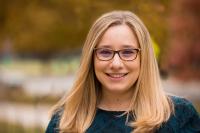
Caryn HerringM.S., CCC-SLP
How to Help Kids Who Stutter. Let's Talk About It!
This course will go through a brief history of stuttering therapy throughout the years, the differences between the main theories/approaches to stuttering therapy, and how to support children who stutter (CWS) in the school setting (as well as in their world outside of school.) It will help in the understanding of social stigma, microaggressions, and the use of positive vs negative descriptors regarding stuttering along with talking about ways to help CWS and their parents gain advocacy skills and how to collect data and write measurable goals for CWS.
Presenter
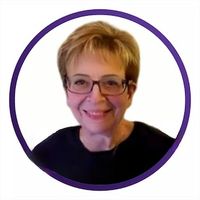
Lucy ReedMA, CCC-SLP
Supervising Student Interns: The Good, Bad and Ugly
This course is designed to reignite your desire to help future generations of Speech and Language Pathologists. You will learn ways to find student interns, how to get acclimated with an intern starting with you, strategies for successfully transferring the responsibilities to the intern and how to conclude the experience.
Presenter
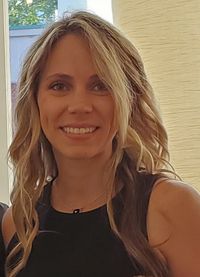
Lindsay ArbutinaMA CCC-SLP
Using Technology for Carry-Over Supports
Trying to connect parents or guardians with materials to support their learners during breaks from school? Discover free and accessible online materials to help parents or guardians support their learner's speech and language needs. This course will introduce online strategies that are 100% free to use for teachers and parents so that maintaining speech and language skills at home will be a fun and engaging experience.
Presenter
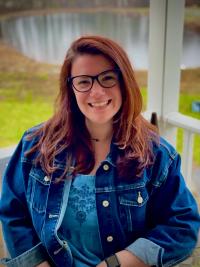
Katherine RackliffMA CCC-SLP
Teletherapy Simulations: From Planning to Home Practice
This course will provide a demonstration of teletherapy, including setup of the virtual therapy room, planning for effective therapy, implementation of services, and carryover within the home. Through simulation of various cases, the presenters will demonstrate evidence-based strategies and tools for successful teletherapy. Attendees will leave this presentation with knowledge of how digital materials may be organized and utilized effectively during therapy sessions. In addition, the presenters will provide solutions to common obstacles that may arise with teletherapy.
Presenters

Amy GanserMS, CCC-SLP
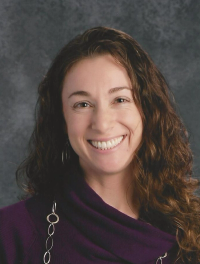
Robyn RayeMA, CCC-SLP
Secondary SLPs love SLP ToolKit too!
Secondary Speech Language Pathologists can encounter unique situations when managing their caseloads when compared to their elementary counterparts. Planning and providing therapy sessions is only one part of the equation. With increasing case load numbers, multiple campuses, and time line demands for documentation, learning time management skills becomes imperative. We will consider organizational strategies to become more efficient with documentation and scheduling: We'll discuss the use of digital platforms, such as SLP Toolkit, to help with data collection, documentation and scheduling caseloads/sessions.
Presenter
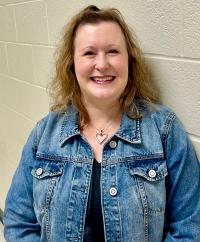
Erin MunozMS CCC-SLP
Engaging Students in the Speech Therapy Process
Speech-Language Pathologists (SLPs) understand that collaboration is the key to success. While many may associate collaboration with other professionals and parents, it is essential that SLPs collaborate with the students themselves. Client-based therapy can help facilitate SLP-student rapport, meaningful therapy goals, increased intrinsic motivation, and carryover of targeted skills. For so many, limited time and resources can be roadblocks to making this shift in therapy sessions. This course explored various action steps SLPs can take to achieve a student-centered therapy session that is meaningful and engaging.
Presenter

Erin Elizabeth MilewskiMS CCC-SLP
Co-teaching and Collaboration for the School Based SLP
This is an introductory course that will provide you with valuable information about the benefits of co-teaching for SLPs, teachers, and students. It is a great starting point if you have never co-taught, aren’t sure where to start, or are curious about how to incorporate it into your practice. Even if you are already using co-teaching in your practice, this course will provide you with fresh examples and routines that you can try with your students right away.
Presenter
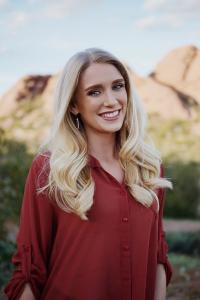
Ashley CupplesMS CCC-SLP
The Ins and Outs of being an SLP Resource Author and Entrepreneur
This course is for creative speech language pathologists who are interested in using their unique talents to create additional sources of income. This course will walk you through the basics of becoming a speech therapy resource author and give ideas for creating multiple revenue streams beyond that. You will get insight on how I started and what I have learned as a business owner navigating the SLP space. This course covers everything from copyright to marketing and how to stand out in today’s SLP business realm. This course is for anyone looking to become self-employed or to start a side business. Learn how I started my business gradually and how I became a fully self employed SLP business owner.
Presenter
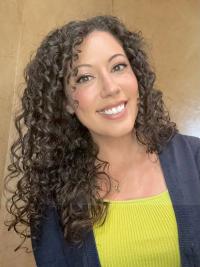
Amanda SchaumburgMS CCC-SLP
The Power of Content Creation: Unlocking Your Potential as a Creator
In today's digital age, content creation has become one of the most popular ways to make money online. Whether you're a podcaster, social media influencer, or course creator, the content creation space offers a myriad of opportunities for using your expertise to earn extra income.
This comprehensive course on content creation is designed to help you explore the various options available for aspiring content creators. You'll also gain a deep understanding of the principles of content creation and develop the skills necessary to create content that engages, informs, and inspires your audience.
Presenter
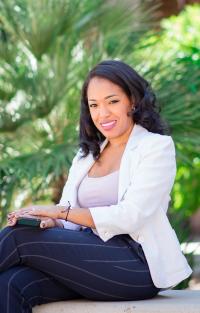
Ebony GreenMS, CCC-SLP
There's an App for That
The iOS and Android app stores contain close to 5 million apps, which are expected to generate over $935 billion in revenue in 2023. So how do you get your idea from concept to download? In this course, Sarah and Lisa review the basics of starting a software as a service (SaaS) business. Participants will discover what they need in order to create an app/software, and learn tips for selling and marketing their product.
Presenters

Lisa KathmanM.S. CCC-SLP

Sarah BevierM.S. CCC-SLP
From School SLP to Private Practice: The Why and How Into Private Practice
Some speech-language pathologists (SLPs) establish their own private practice while working in schools. Having a private practice allows one to be in full control of his or her professional, personal, and financial life while providing clients with exactly what they need without the restrictions that schools impose. There are certain things you must consider before opening a private practice. This course will discuss why starting a private practice is a good idea and how to do it without taking on too much risk. As a result of this course, you will be able to apply actionable strategies that will help you be successful in your private practice.
Presenter
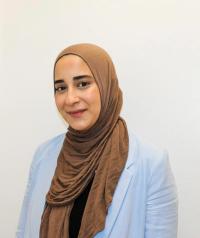
Ahlam IssaM.S., CCC-SLP
From SLP to Authorpreneur: Becoming an Author and Operating a Book Business
This course is an introduction to evolving from an Speech language pathologist to a published author. The course provides an overview of how the skills of clinicians can transfer from practicing to publishing. The presenters will discuss the process of transferring clinical and linguistic knowledge to producing literary works and will outline the processes of becoming published through traditional and self-publishing methods. Participants will learn fundamental aspects of marketing and promotion as well as key strategies for operating a book business.
Presenters

Shontaye Glover JonesMS CCC-SLP
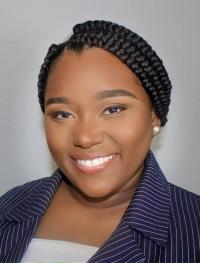
Keylonda WheelerM.S., CCC-SLP
Speaking of Success: Innovative Strategies for Aspiring SLP Entrepreneurs
Unleash your entrepreneurial spirit with "Speaking of Success: Innovative Strategies for Aspiring SLP Entrepreneurs," an exciting and inspiring course tailored for speech-language pathologists (SLPs) eager to revolutionize their careers and transform their passion into thriving businesses.
Dive into the vibrant world of SLP-focused entrepreneurship, where the art and science of speech-language pathology fuse seamlessly with creative business strategies to empower your professional journey. This dynamic course is your gateway to discovering untapped opportunities, innovative solutions, and trailblazing ideas that will set you apart in the competitive SLP landscape.
Throughout this immersive experience, you will explore captivating topics such as unearthing niche SLP markets, crafting exceptional SLP resources, leveraging social media for maximum impact, and establishing multiple income streams. Real-life success stories, interactive activities, and practical tips will spark your imagination and equip you with the tools to build a flourishing SLP business.
By the end of this transformative course, you will not only possess a deep understanding of the entrepreneurial possibilities within the speech-language pathology field, but also the confidence and skills to bring your unique vision to life.
Embark on a captivating adventure that will reshape your professional future, and join a vibrant community of like-minded SLP entrepreneurs committed to making a difference in their field. Sign up for "Speaking of Success: Innovative Strategies for Aspiring SLP Entrepreneurs" today, and let the journey begin!
Presenter

Samantha Walker M.S., CCC-SLP/L
Providing Bilingual Spanish Augmentative Alternative Communication Services
This seminar identifies culturally responsive AAC practices, including current issues, myths, and concerns in providing Spanish bilingual AAC intervention; Latino cultural perspectives; evidence-based AAC intervention tools for Spanish bilingual emergent communicators; and defines SLP's role in supporting language growth.
Presenters

Alma PartidaMA, CCC-SLP

Maria De LeonM.S., CCC-SLP

Melissa TapiaM.S., CCC-SLP

Eunsey LeeM.S., CCC-SLP
More Joy, Less Stress: A Guide To Address Burnout
During this course we will dive into the importance of establishing boundaries, identifying/creating an individualized self care plan and discuss current burnout indicators. As an education professional, there will be some HARD days. This course is designed to give you essential tools to minimize those times and maintain your passion.
Presenter
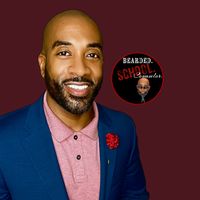
Michael Creekmore, Jr.LPC, CPCS
The Investment in and Commitment to Diversifying Speech-Language-Hearing Sciences
Have you heard questions or participated in discussions such as:
“Why don’t we have more men in the field?”
“Wow, Black men in the profession of speech pathology and audiology, they’re unicorns!”
“We need clinicians and practitioners that match the demographics of the populations being served in our work settings.”
If so, you would be among a number of individuals who have looked around and wondered, why do we not have a diverse group of professionals working in the speech-language-hearing sciences (SLHS). There are a number of reasons why this is a phenomenon. One of the many concerns related to diversity in SLHS is the fact that the number of Black professionals has been slow in growth and it does not represent the demographics of our global society. Based on information reported by the American Speech-Language Hearing Association in 2021 related to membership, of the 193,000 respondents, 8.7% identify as people of color, 3.6% identify as Black. In a profession that is approximately 96% female, 3.7% identify as men (of all races). From that information, we can extrapolate that less than 1% of that group would identify as a Black man. There is a continued need to discuss how we can invest in the commitment to diversify the profession, provide equitable actions and access to ensure recruitment and retention efforts are successful. How do we go about expounding on the racialized biases, identifying barriers that prevent access and inclusion, and overcoming the inequitable actions that disable the diversification of speech-language-hearing sciences?
This session will offer ideas, suggestions, strategies, and engage you in a thoughtful discussion on what must be done to create a profession that is welcoming and supportive of varied perspectives, genders, ethnicities, and races.
Presenters
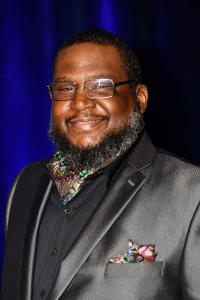
Jerrold JacksonM.A., CCC-SLP
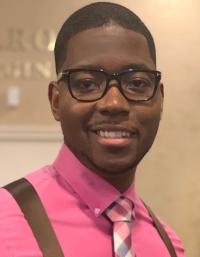
Julien FrazierM.A., CCC-SLP
Empowering Monolingual SLPs to Provide Intervention for Bilingual Clients
Participants will learn about resources that will help empower them to provide speech/language intervention successfully and ethically for clients who come from bilingual and multilingual households. Whether they speak the client’s language or not, participants will learn the importance of utilizing available resources to communicate with their clients, and help them learn about their client’s cultural background and possible language influences. Participants will also learn how to write appropriate goals for intervention and how to select appropriate intervention materials.
Presenter
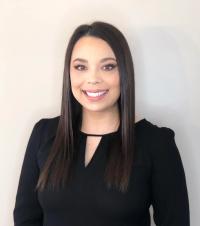
Liliana Diaz-VazquezM.S.,CCC-SLP/L, Bilingual
Navigating Generational Diversity in Your SLP World
Generational diversity is a type of diversity that is frequently overlooked. Perhaps for the first time in history, many of our professional relationships involve interactions among five different generations. The speech language pathologist (SLP) is likely to experience multigenerational dynamics among clients, supervisors, supervisees, students, or fellow co-workers. Multigenerational environments are often bursting with diversity in experiences, customs, beliefs, values, and worldviews. Due to vast generational gaps, there may be misunderstandings, biases, unspoken attitudes, stereotypes, and even conflicts. Generational differences may intersect across a multitude of other multicultural dimensions. This presentation will explain foundational information regarding generational diversity and provide essential strategies for thriving in multigenerational environments.
Presenter

Alayna E. TownsendPh.D. CCC-SLP
One Size Does NOT Fit All - Communication Equity in the Deaf Community
This course will focus on communication equity in the field of speech pathology and audiology related to working with Deaf/Hard of Hearing (DHH) students. We will discuss considerations for communication, optimal service options, and barriers to accessibility. Examples of situational challenges and solutions will be provided to educate and empower the audience to be proactive when working with this population of learners.
Presenters

Germaine GrahamM.S., CCC-SLP
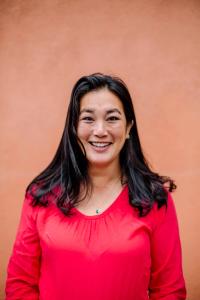
Michelle HuAu.D., CCC-A
Using Dialect Discovery Worksheets with Language Samples
Clinicians are experts at detecting patterns of behavior to identify a child's strengths and weaknesses, whether the area of concern is speech, language, and/or fluency. This talk will introduce dialect discovery worksheets that allow a clinician to use a language sample to identify patterns of grammar strengths and weaknesses across all dialects of English.
Tutorial on Complex Verb Structures
This talk will first review morphology associated with children's verb production within language samples as is often taught using Roger Brown's 1974 framework. Expanding on this foundation, we will then explore other morphological structures (e.g., participles, particles, and auxiliaries other than BE and DO) children produce during language samples and consider diagnostic tests the speech-language pathologist can implement to identify these structures, especially when the structures involve camaflouged forms across dialects of English.
Transcribing Child Language Across Dialects of English
Most clinicians learned to transcribe samples for children who speak General American English (GAE), yet many clients speak dialects that differ from GAE. When a child doesn't speak GAE, clinicians also often do not know when a child's production of a word, inflection, or phrase should be considered appropriate or inappropriate for a child's dialect. This talk will present transcription and coding guidelines to use with children who speak a variety of English dialects that differ from GAE.
Presenter
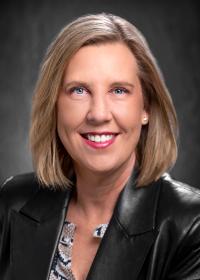
Janna B. OettingPh.D., CCC-SLP
The SUGAR Cubes of Language Sampling: Transcription and Analysis
This interactive presentation discusses the SUGAR (Sampling Utterances and Grammatical Analysis Revised) method of language sampling and analysis. Results from several research studies indicated that language samples can be collected, transcribed and analyzed using SUGAR in approximately 20 minutes and that the resultant language sample analysis (LSA) metrics can be used to accurately and efficiently identify children with language impairment. This session will introduce the SUGAR method of transcribing and analyzing language samples.
Presenter
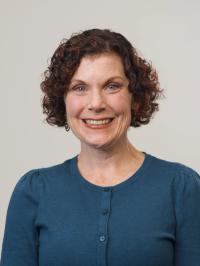
Stacey PavelkoPh.D., CCC-SLP, FNAP
The SUGAR Blocks of Language Sampling: Clinical Decision Making
This interactive presentation discusses the SUGAR (Sampling Utterances and Grammatical Analysis Revised) method of language sampling and analysis. Results from several research studies indicated that language samples can be collected, transcribed and analyzed using SUGAR in approximately 20 minutes and that the resultant language sample analysis (LSA) metrics can be used to accurately and efficiently identify children with language impairment. This session will discuss how to use results obtained from a SUGAR language sample to make clinical decisions and identify potential therapy targets.
Presenter

Stacey PavelkoPh.D., CCC-SLP, FNAP
Sampling Utterances and Grammatical Analysis Revised (SUGAR): Language Sampling
This interactive presentation discusses the SUGAR (Sampling Utterances and Grammatical Analysis Revised) method of language sampling and analysis. Results from several research studies indicated that language samples can be collected, transcribed and analyzed using SUGAR in approximately 20 minutes and that the resultant language sample analysis (LSA) metrics can be used to accurately and efficiently identify children with language impairment. This session will discuss the background of the SUGAR method and introduce the first cornerstones of the SUGAR method: robust sampling.
Presenter

Stacey PavelkoPh.D., CCC-SLP, FNAP
Language Sampling: The Heart and Soul of Language Assessment
Language samples are considered one of the best ways to learn about a child’s language system. Unfortunately, clinicians receive varying degrees of training in language sample elicitation, transcription, and coding, and there are few opportunities to develop expertise in sample analysis unless one works in a research lab. In this talk, Drs. Pavelko and Oetting will provide an overview of the heart and soul of the language sample, sharing evidence-based procedural advances that can save a clinician time and linguistic advances that can help a clinician appropriately code and interpret children’s utterances across various dialects of English.
Presenters

Stacey PavelkoPh.D., CCC-SLP, FNAP

Janna OettingPh.D., CCC-SLP
We Belong: The Intersectionality of Impostor Syndrome for BIPOC LGBTQIA+ SLPs
Most Speech-Language Pathologists (SLPs) are told they will experience impostor syndrome at some point in their careers. While the impostor phenomenon has widely been discussed and researched over the last decade, the body of research has focused on individual analysis. This course will take a closer at the intersectionality of impostor syndrome within the field of speech-language pathology. Attendees will be able to define impostor syndrome and intersectionality, discuss external factors that impact Black, Indigenous, people of color (BIPOC) lesbian, gay, bisexual, transgender, queer, intersex, asexual (LGBTQIA+) SLPs, identify opportunities to demonstrate allyship, and learn strategies to combat impostor syndrome.
Presenter
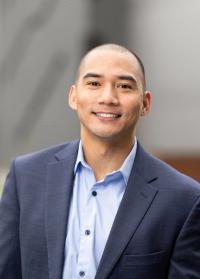
Hector MiguelM.S. CCC-SLP
Walking Diverse Clinical Pathways: Medical SLP Edition
This course will explore some of the clinical and socio-emotional-behavioral complexities experienced from the lens of two queer-identified medical speech-language pathologists, one Black, and the other Latina Jewish. They will explore concepts related to the intersections of race, language, socioeconomic status, gender expression, sexual orientation, and religion in the hospital setting. The format of this presentation is case studies in which the presenters outline a clinical scenario, the dilemma, and potential solutions. They will engage in high-level dialogue about impacted groups, pathways to their decision-making, and patient outcomes.
Presenters
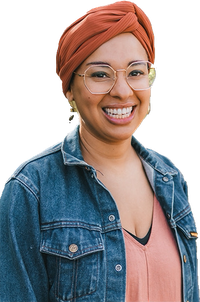
Faith PurnellM.S. CCC-SLP
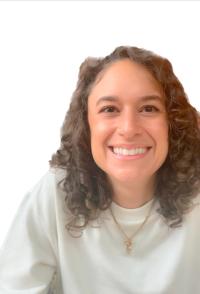
Jayne MirandaM.S. CCC-SLP
The Intersection of Gender and Neurotype; Trauma Informed Approaches
This course will guide participants through an understanding of intersectional identities and affirming practices for folks of all genders and neurotypes. We'll discuss the tenets of trauma-informed care, ways to reduce masking demands and create actionable plans for enabling clients to self-advocate.
Presenter
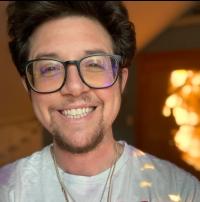
AC GoldbergPhD CCC/SLP
LGBTQ Inclusive Practices 101
Lesbian, gay, bisexual, transgender, and queer (LGBTQ) inclusive practices can have a profound positive impact on therapeutic outcomes and quality of life. Being culturally responsive and inclusive of people of all gender identities, gender expressions, and sexual orientations is a sought-after skill by many professionals. In this hour-long introductory level course, participants will learn about LGBTQ-inclusive practices across settings and will leave with the knowledge and tools to begin to implement these practices in their workplaces and with their clients.
Presenter

Wes CherninMS, CCC-SLP
Cultural Responsiveness: Crafting Safer Spaces for Autistic LGBTQIA+ Clients
During the course of this presentation, participants will learn terminology relating to LGBTQIA+ and Autistic identities and receive insight into the lived experiences of members of these communities. Participants will learn to foster “safer” spaces to support LGBTQIA+ and Autistic clients, and will identify places where bias can show up within themselves, workspaces, and broader systems in order to prevent and counteract these biases.
Presenter
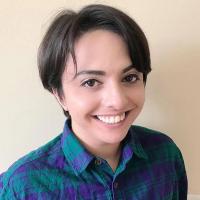
Ry PilchmanM.S., CCC-SLP
Creating a Queer and Trans Inclusive Literacy Classroom
In this course, participants will engage with work of literacy education scholars to go beyond "just" putting children's books with LGBTQ+ representation on the shelf. What does it look like to evaluate queer children's literature with a critical lens so what is on the shelf is quality? What does it mean to make use of these texts and build community? How can we use books as probiotics as opposed to antibiotics once bullying or harm has been done? Participants will engage with field-based scholarship to dissect inclusive literacy pedagogy and make plans to bridge it to their own practice.
Presenter

Jaye JenkinsEdD
Practical Tools for Ethical Counseling with Diverse Population
Counseling within the context of communication disorders is consistently part of our practice, regardless of the setting. During this presentation, we will examine the implications and intersectionality of counseling diverse populations, including bi/multi-lingual, LGBTQIA+, low socioeconomic status, and immigrant clients and families. This course will provide a broad overview of how to counsel ethically, including limits, strategies, and resources for further learning.
Presenter
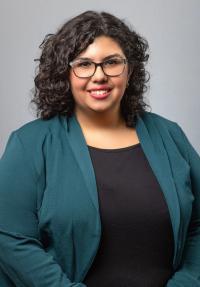
Kelly Ann PeñaM.S., CCC-SLP, TSSLD, CBIST
Authentically Me: Acknowledging Identity in Clinical Supervision Relationships
Culturally-responsive practice does not begin with client care, but rather extends to each of our interactions within a professional space. Given the way that our intersecting identities shape the way we show up in the world - including within our clinical supervision relationships – it is imperative that we as supervisors dive deeply into aspects of our own identities as we engage in clinical supervision activities. In this workshop, we will explore aspects of identity and positionality in relation to power, and apply this lens to our relationships with student mentees. Using our personal exploration of self and related concepts, this workshop aims to provide the attendee with a lens for working across lines of difference, increase capacity for integrating student identity into the clinical supervision relationship, and explore strategies for mitigating conflict by acknowledging individual experience.
Presenter
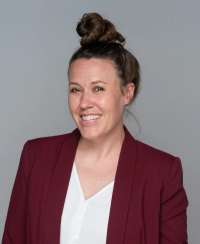
Stephanie HubbellM.S., CCC-SLP
Trauma-Informed Clinical Care from Childhood to Adolescence
This course will focus on the effects of exposure to trauma, including abuse and neglect, on language development, and executive functioning. It will also include culturally responsive practices with regard to evaluation and treatment. The impact on early brain development will be discussed, as well as the importance of early intervention to prevent increasing difficulties over time with the shift into adolescence. With the shift in adolescence, this course will also touch upon the effects abuse and neglect have on cognitive and linguistic skills that impact social justice issues, specifically juvenile justice.
Scaffolding Stories Tech Up Your Narrative Language Intervention
Looking for new ways to target narrative language and its building blocks? Story elements, semantics and syntax can be developed through the use of simple, motivating and visual tech tools. This course will describe tricks and resources for assessing and building narrative language skills with the use of web tools and apps, along with a wealth of examples!
Presenter
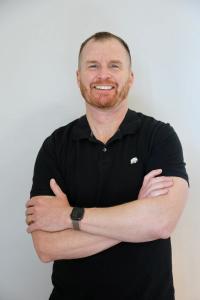
Sean J. SweeneyMS MEd CCC-SLP
Please, Just Tell Me What Therapy Approach I Should Choose!
With so many different intervention options for treating speech sound disorders, it can be hard to decide which therapy approach to choose! Combining real-life case examples, speech-language pathologists will learn how to problem-solve and choose an intervention approach that best suits the individual child. This course will address children with phonological disorders and childhood apraxia of speech.
Presenter

Rebecca ReinkingCPSP, CCC-SLP
How to Implement the Complexity Approach in your Therapy Session
Many speech-language pathologists (SLPs) have heard of the complexity approach as an intervention option for children with phonological impairments; however, they have never seen it implemented. Using easy-to-understand explanations and case studies from clients, SLPs will leave with an introductory knowledge of how to use the complexity approach with their students.
Presenter

Rebecca ReinkingCPSP, CCC-SLP
How Did You Get Your Client to Do That?
In this hour-long course you’ll learn how to plan and execute a more efficient therapy session. While mistakes are a part of the learning process, I’ll give you practical and tangible tips to course-correcting and getting your sessions back on track!
Presenter

Jennie BjoremM.A. CCC-SLP
Demystifying the Complexity Approach: Making Theory Practical
This presentation will provide an overview and rationale for this approach and explain the principles for target selection. Strategies for choosing appropriate target phonemes and therapy implementation will be discussed.
Presenter

Amy GrahamMA, CCC-SLP
Speech Pathologize the Bleep Out of Your IEP Meetings
Have you ever sat in an IEP (Individualized Education Plan) meeting and thought, "Please don't ask to see my data?" Even when speech language pathologists (SLPs) have available data, it is usually housed on paper or in binders, making it hard to decipher, hard to access and hard to convey at meetings. School SLPs across the nation often face caseloads of 65+ students and may work with preschool through 12th grade with a wide range of communication needs, which compounds the issue of how to best collect data for a variety of needs throughout the school year. This course will focus on how to streamline the collection and analysis of data for a variety of purposes, including treatment efficacy, progress monitoring, and writing treatment plans using cutting edge technology.
Presenters

Lisa KathmanM.S. CCC-SLP

Sarah BevierM.S. CCC-SLP
Strategies to Increase Regulation & Communication in Your Autistic Students
This presentation will inspire a new way of thinking about the SLP’s role in addressing sensory needs. Attendees will walk away with new ideas for integrating sensory strategies into their sessions in order to improve attention, build engagement, and increase communication.
Presenter
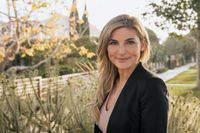
Jessie GinsburgM.S., CCC-SLP
Complex Communication Needs: Beyond the Basics
If you have students with complex communication needs using augmentative & alternative communication (AAC) on your caseload, then you’re in the right place! Sometimes therapy can feel tricky with this population, but it doesn’t have to be that way. In this course, we will explore best practices for treating complex communication needs along with activities that go beyond the basics you already know and support the curriculum in the classroom. Using what you already know about language intervention and pairing it with evidence-based practice for AAC, we will have you feeling confident to take on this next school year.
Presenter

Emily DiazMS CCC-SLP
Teaching Pronouns Through an Inclusion Lens
Teaching pronouns as a speech-language pathologist (SLP) can feel tricky when you haven’t been taught how to target pronouns through an inclusion lens. As a transgender SLP, I will walk you through why implementing gender affirming pronoun practices within your work as an SLP is necessary, how pronouns can be targeted within speech therapy in a culturally responsive way, and specific strategies you can immediately rollout with your caseload.
Presenter

Wes CherninMS, CCC-SLP
Autism in Girls: A Harmful Oversimplification
Rachel and Caroline will outline how the history of the autism label and subsequent research impacts access to an autism evaluation and stereotypes surrounding autism and gender. They will then discuss how "autism in girls" is a misguided conceptualization of autism and educate the audience on autistic presentations being a unique combination of genetics and social conditioning. Microaggressions against this population will be described. Finally, implications for speech-language pathologists including referral for autism diagnosis and support throughout the lifespan will be discussed.
Presenters
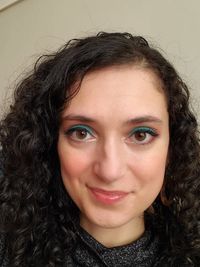
Rachel DorseyM.S., CCC-SLP

Caroline GaddyMFA, MA CCC-SLP
Effects of Diverse Cultural Experiences on Clinical Practices
This presentation aims to provide the audience a framework for identifying opportunities and sustaining learning environment that facilitates the use of culturally responsive clinical practices. Specifically, the presenter will provide an overview on the topic of cultural competence as it pertains to SLP practices, discuss properties of culturally responsive clinical services, offer a detailed overview on the role of personal experiences, and extend the discussion into tips for building cultural competence skills.
Presenter

Suma SuswaramPh.D
Disrupting the Race Gap for Alexithymia Care
This course examines how speech-language pathologists and occupational therapists can identify and disrupt biases in social communication and participation across early intervention and school systems.
Presenters
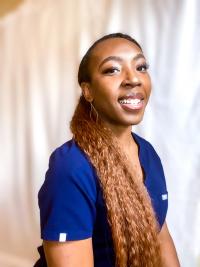
Diamond RashadMHS, OTD, OTR/L
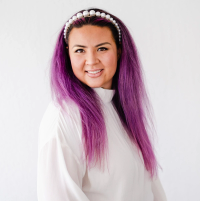
V. TisiM.A., CCC-SLP
Critical Topics in the Assessment of Bilingual Clients Across the Lifespan
This course will outline the basics of second language development. Critical considerations including dialect, socioeconomic factors, and cultural differences will be discussed in detail. SLPs will learn how to phrase questions in order to inform clinical judgment when determining difference vs. disorder. This course is designed for both bilingual and monolingual SLPs. Content will cover assessment considerations for both bilingual children and adults.
Presenter
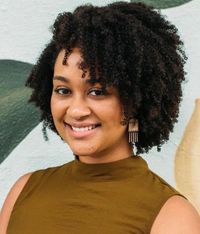
Jackie RodriguezM.S., CCC-SLP
Examining Implicit Bias and Diversifying the Field of Speech-Language Pathology
According to a demographic profile of ASHA (American Speech and Hearing Association) constituents, a mere 8% of practicing speech-language pathologists (SLPs) indicated that they identify as a person of color. The result of this demographic phenomenon is that there are often profound communication breakdowns and cultural disconnects between therapists and the students, clients, and patients they treat, as well as families and caregivers. The session will discuss how the lack of diversity in the field of speech therapy can result in a fractured patient-provider relationship and treatment inequalities. Attendees will learn about implicit bias, cultural and linguistic sensitivity, and interacting with diverse clients/families/patients. They will examine how implicit biases impact overall assessment and treatment practices in the field of speech-language pathology. Finally, participants will be provided with resources to develop their own action plan to diversify the field, as well as access to templates to get started.
Presenter
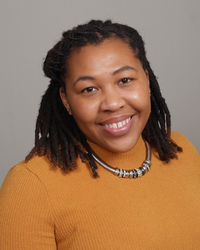
Christina RoysterEdD, CCC-SLP
I Have a Cue for That! Learn the 11 Cues You Need for Your Speech Sound Caseload
Participants will learn how to individualize a range of multisensory production cues and expand their toolbox using therapy resources and materials available on the internet.
Presenter

Rebecca ReinkingCPSP, CCC-SLP
Help! I'm Stuck Using the Minimal Pairs Approach
Have you ever started using the minimal pairs approach and then felt "stuck" when your sessions do not go to plan, and all progress stops? In this presentation, we will be addressing three common areas where SLPs experience difficulty using minimal pairs. You will leave this session being able to problem solve what you can do when your child is not stimulable for their target sound, how to help your students understand minimal pairs and options for when your child is not generalizing.
Presenter

Rebecca ReinkingCPSP, CCC-SLP
The Cycles Approach: From Target Selection to Implementation
This presentation will provide an overview of and rationale for the cycles approach and demonstrate how to effectively organize therapy sessions. Strategies for choosing appropriate target phonemes and target words, as well as videos of actual therapy sessions demonstrating implementation, will be shown.
Presenter

Amy GrahamMA, CCC-SLP
Oral Mechanism Exams: Level Up Your Speech Assessments
This presentation will specifically address what oral/facial structures and motor tasks can help SLPs differentially diagnose speech sound disorders and what findings may lead them to consider appropriate referrals to specialists. Videos of actual assessments will be shown to demonstrate particular aspects of an oral mechanism exam administration.
Presenter

Amy GrahamMA, CCC-SLP
How to Use the SLP Toolkit Apraxia Screening and Develop Goals Based on Results
Did you know that SLP Toolkit has an apraxia informal screening tool for childhood apraxia of speech? YAY! But, do you feel confident in how to use it and make treatment decisions based on the results? In this course, we will walk through the characteristics of CAS and how to use this tool to identify them. When we know that we are dealing with a motor planning speech disorder we can create goals and use an evidence-based approach to support our clients. At SLP Toolkit it is our goal to help you do just that!
Presenter

Jennie BjoremM.A. CCC-SLP
A Survival Guide for School Based Group Therapy
This course is designed to support school-based speech-language pathologists (SLPs) at varying levels of their careers to discover efficient and effective therapy within the group setting. This course will cover the organization, planning, relationship building, evidence-based-practice therapy approaches, collaboration, scaffolding of support, and points of further consideration for each individual practice.
Presenter
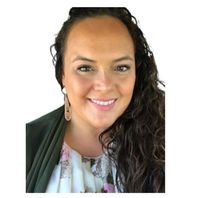
WaNani VaitafaM.S., CCC-SLP
Dynamic Assessment for Students Who Are Culturally and Linguistically Diverse
Research has proven that standardized language tests are biased against clients who are English language learners (ELLs), come from lower socioeconomic backgrounds or represent diverse cultural backgrounds. This session provides an overview of said research and focuses on outlining dynamic strategies and resources for assessing students from culturally and linguistically diverse backgrounds.
Presenter

Nia Thomas M.SCCC-SLP, TSSLD
African American English: How to Determine Difference vs. Disorder
Discover the origins and features of African American English (AAE). Due to the inherent cultural biases within traditional, standardized assessments, the presenter addresses a variety of evidence-based speech-language assessments to evaluate AAE speakers. This seminar concludes with an analysis of treatment related to AAE, and additional implications for speakers of AAE.
Presenter
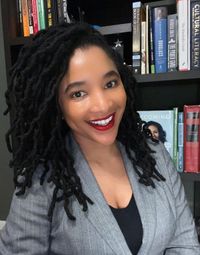
Courtney OvertonMS, CCC-SLP
Neurodiversity-Affirming Therapeutic Practice for the Autistic Population
This course guides the audience through the elements of neurodiversity-affirming evidence-based therapeutic speech-language intervention for the autistic population. Communication, pragmatic, sensory, motor, executive functioning, and emotional regulatory differences are discussed as they pertain to autistic individuals. Ethical therapy practices as well as potentially trauma-inducing practices that providers need to be aware of when working with this population are examined.
Presenter

Rachel DorseyM.S., CCC-SLP
MICROAGGRESSIONS: Begin with End in Mind
This course examines the nuances of Microaggressions (MAs) and assists participants to gain insight of the impact of MAs on society and the clients served. The course explores culture competence and cultural humility, with the intention of increasing quality client interactions, consequently eradicating MAs, through utilization of action strategies provided.
Presenter
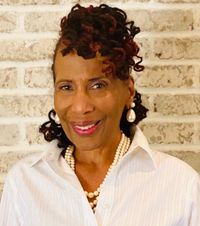
Vicki L. TurnerD.M., M.A. CCC-SLP
Cultural Competence + Humility = Cultural Competemility for Speech Pathologists
This session addresses the evolution from cultural competence towards cultural humility/responsiveness in the education and healthcare professions. Currently a variety of terms exist to address cross-cultural best practices in service delivery. This presentation addresses the concept of cultural competemility and how it can be applied to the field of speech-language pathology.
Presenter
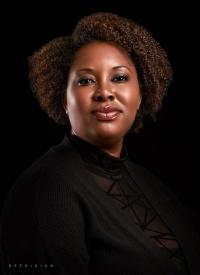
Kyomi GregoryPh.D., CCC-SLP
Getting Started with SLP Toolkit
SLP Toolkit is an online platform for SLPs to collect data, administer informal assessments, write goals, and manage their caseload. Participants will learn how to import their caseload, create a schedule, assign and administer tests, generate reports and graphs, lesson plan, and access support materials.
Presenters
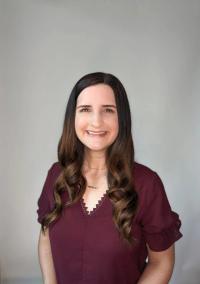
Valerie BurnhamM.S. CCC-SLP
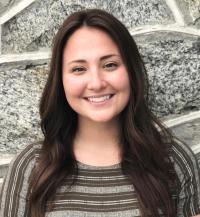
Risa FlyB.S.
